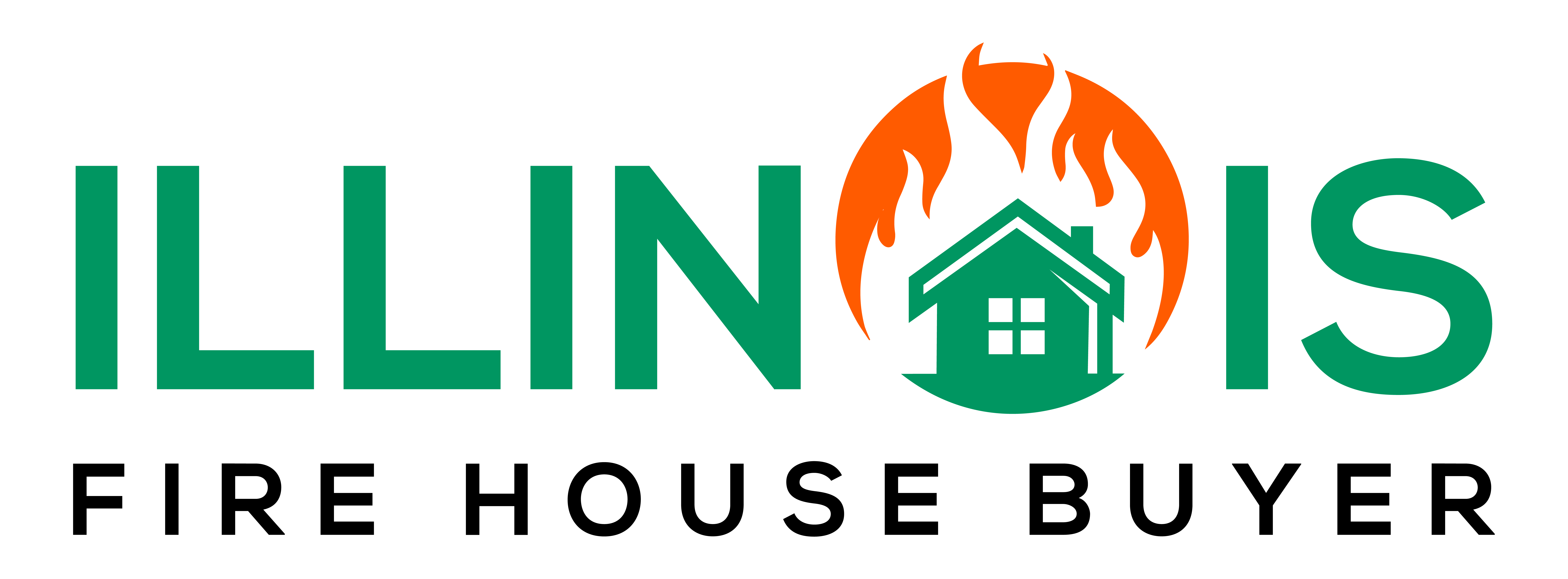Selling A House With Fire-Damaged In Chicago
We buy fire damaged homes as-is in IL for cash! No repairs. No fees.
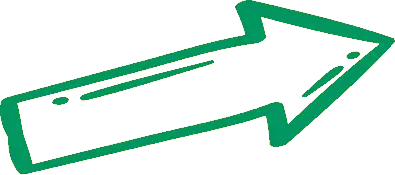

We’ll Give You A No Pressure As-Is Cash Offer in 24 Hours
We’re Local, Can Close in 10 Days, Fast Cash




How To Sell A Fire Damaged House As Is In Chicago
Thinking about selling your house as-is in Chicago? Whether you’re in Lincoln Park, Hyde Park, Logan Square, or any Chicago neighborhood, our easy 3-step process gets you a free cash offer fast. Skip the traditional agent—get cash in your account in as little as 7 days, or on your schedule. Ready to move quickly? Contact Sell Fire Damaged House Chicago today!



Fill Out Form
Fill out our form and we’ll get started on your free offer! No obligations.



Receive Cash Offer
We’ll research your property and call you with our fair offer in cash!


You Get Paid!
Money in your bank account at closing. As quick as 7 days!
Sell Your House Fast After a Fire
Selling your fire-damaged home in Chicago is easier than ever. From Rogers Park to Bronzeville, our hassle-free process lets you move forward quickly—so you can focus on what matters most.
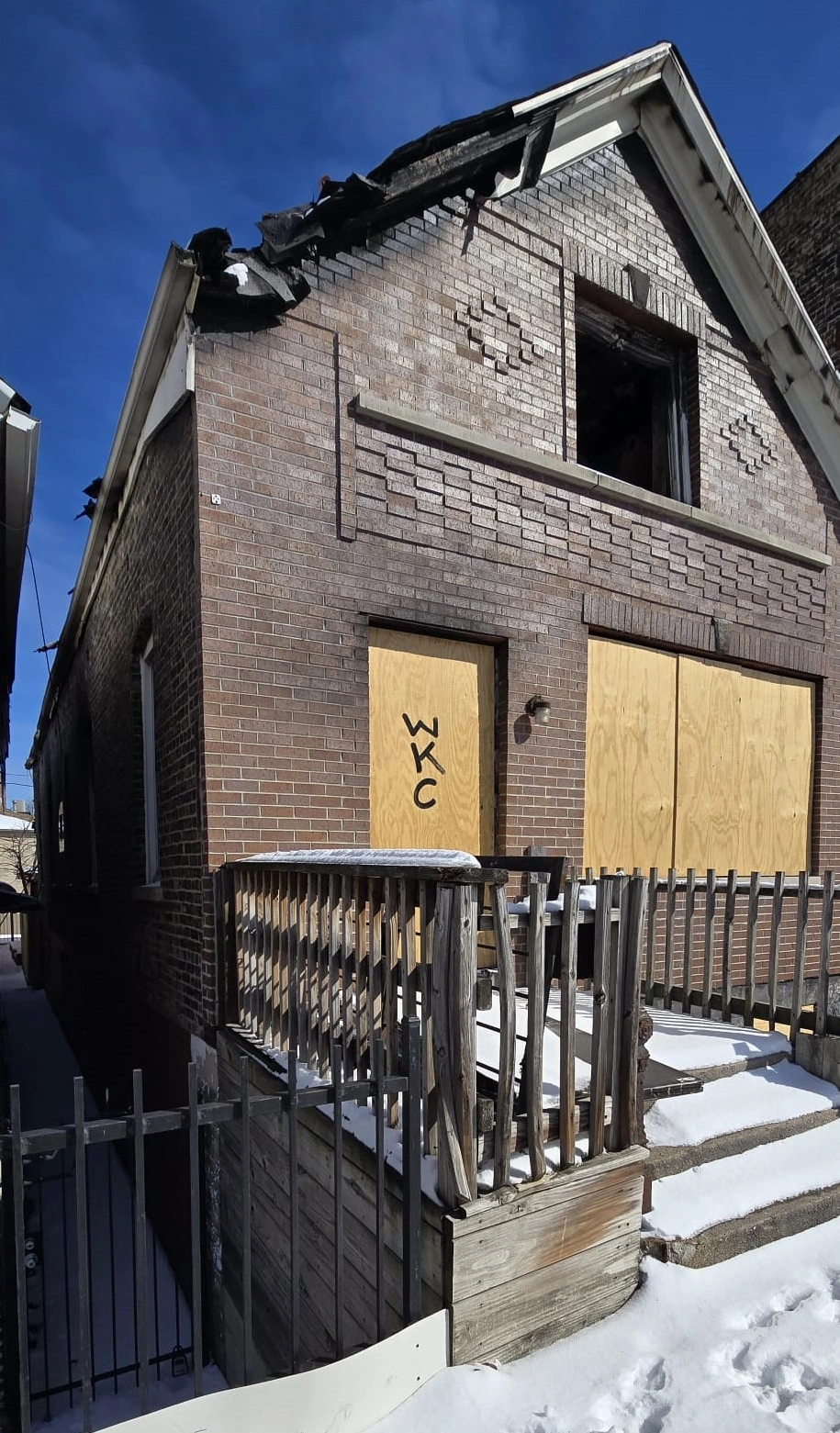
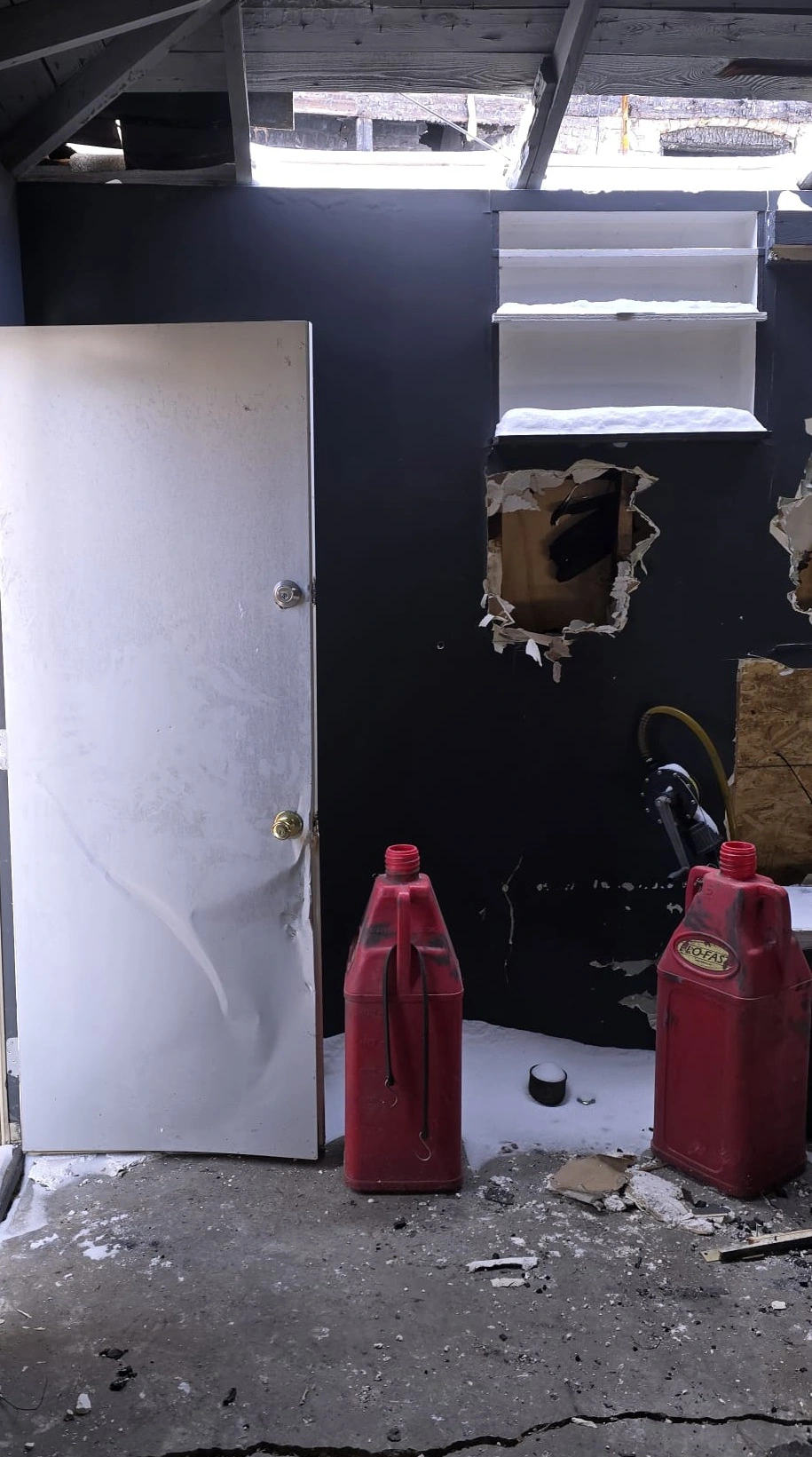
How To Sell A Burned Down Fire Damaged House In IL
- We Buy Fire Damaged Homes
- Selling a fire-damaged house in Chicago requires weighing the pros and cons of various options, such as selling as-is or repair and listing.
- It is important to consult a fire damage restoration contractor to properly assess the damage and estimate repair costs in order to accurately price a house with fire damage.
- In Chicago, it is recommended to disclose fire damage when selling your property in order avoid potential legal disputes & financial liabilities.
We Buy Fire Damaged Homes As Is
We buy homes as-is across all Chicago neighborhoods—whether you’re facing financial stress, probate, or just want to skip MLS listings, inspections, and realtor hassles. Sell your house as-is in areas like Wicker Park, Englewood, or Uptown, and avoid showings and headaches. We make selling easy, no matter your situation.
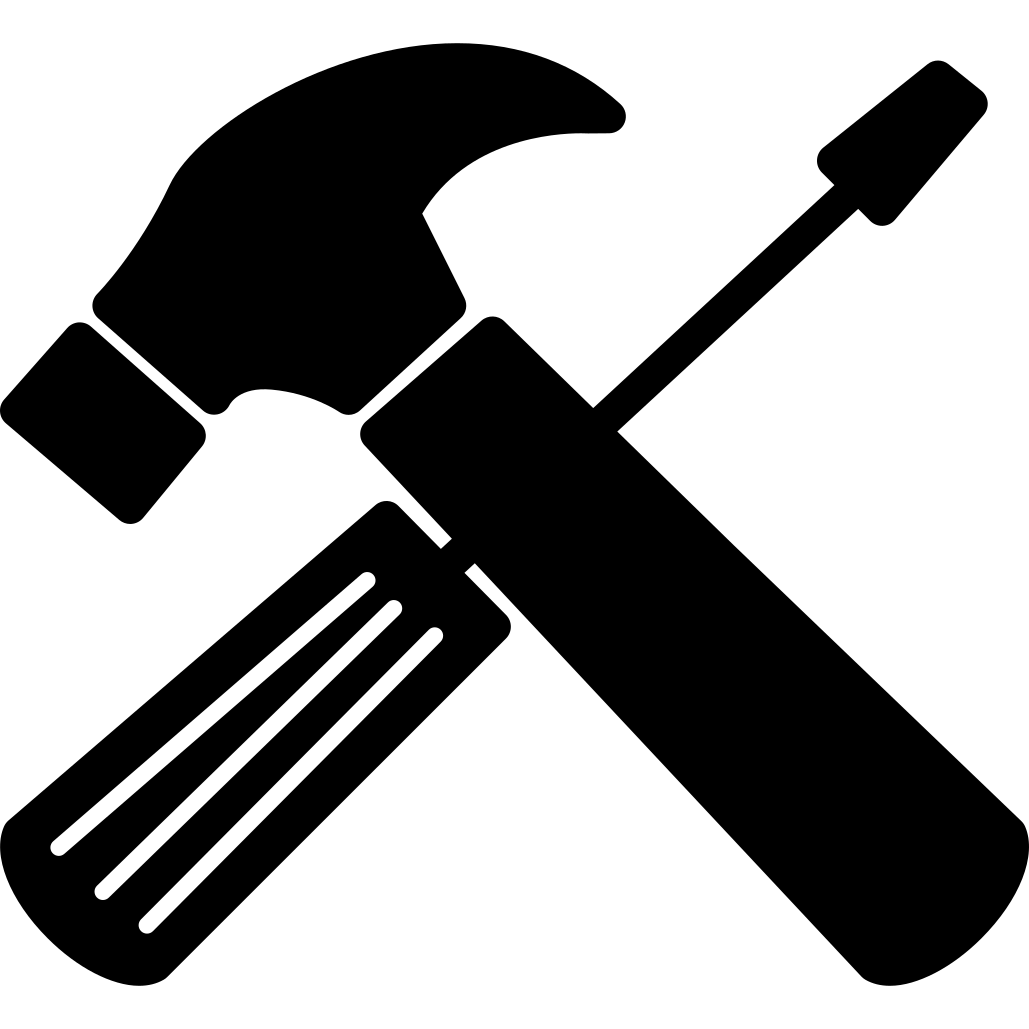
No Home Repairs
Selling your house as is means we take care of all the hassles!

No Agents
Skip paying for agent commission. We make home sales simple!

No Fees
Not only do we have NO agent or iBuyer fees, we cover closing costs!

Fast Closing
Sell your home in 7 days or on your timeline! We buy homes fast.

No Obligations
Take it or leave it. Our free cash offers come with no obligations.

Hassle Free
No agents. No inspection. No delays. We buy real estate as-is for cash!
Can I Sell A Fire-Damaged House In Chicago?
Although selling a fire-damaged house in Chicago is possible, it comes with its own set of challenges. The market value of the property is likely to be affected by the damage caused by the fire. This means that selling at a desirable price may be difficult. Additionally, potential buyers may be more inquisitive and cautious when considering such properties.
When selling your fire-damaged house in Chicago, you can either restore it or sell it as-is. If you decide to restore the property, you may face high repair costs and a lengthy rebuilding process. On the other hand, selling as-is can save you time and money, but may result in a lower selling price. Regardless of your decision, honesty about the damage and required repairs is critical.
Sell Fire Damaged House Chicago!
If a simple home sale that closes on your schedule sounds like what you need, come check us out. You can request a free quote for your house by filling out our form below!
We’ll Give You A No Pressure As-Is Cash Offer in 24 Hours
We’re Local, Can Close in 10 Days, Fast Cash
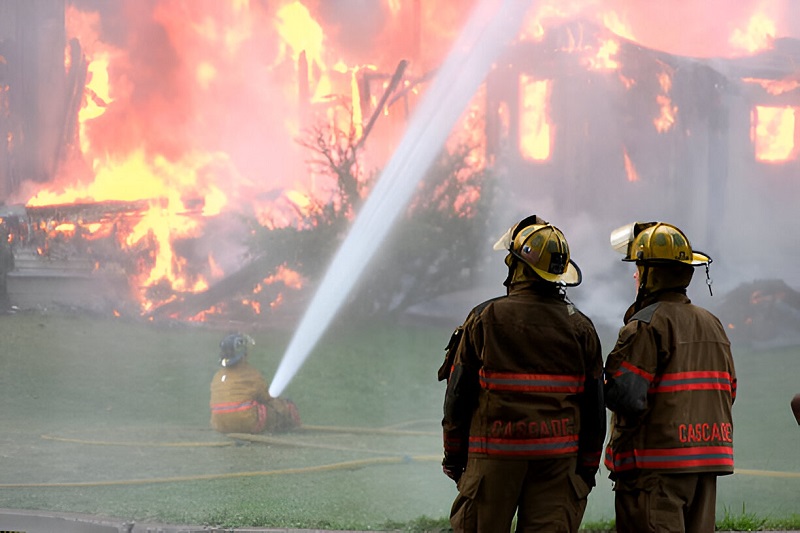
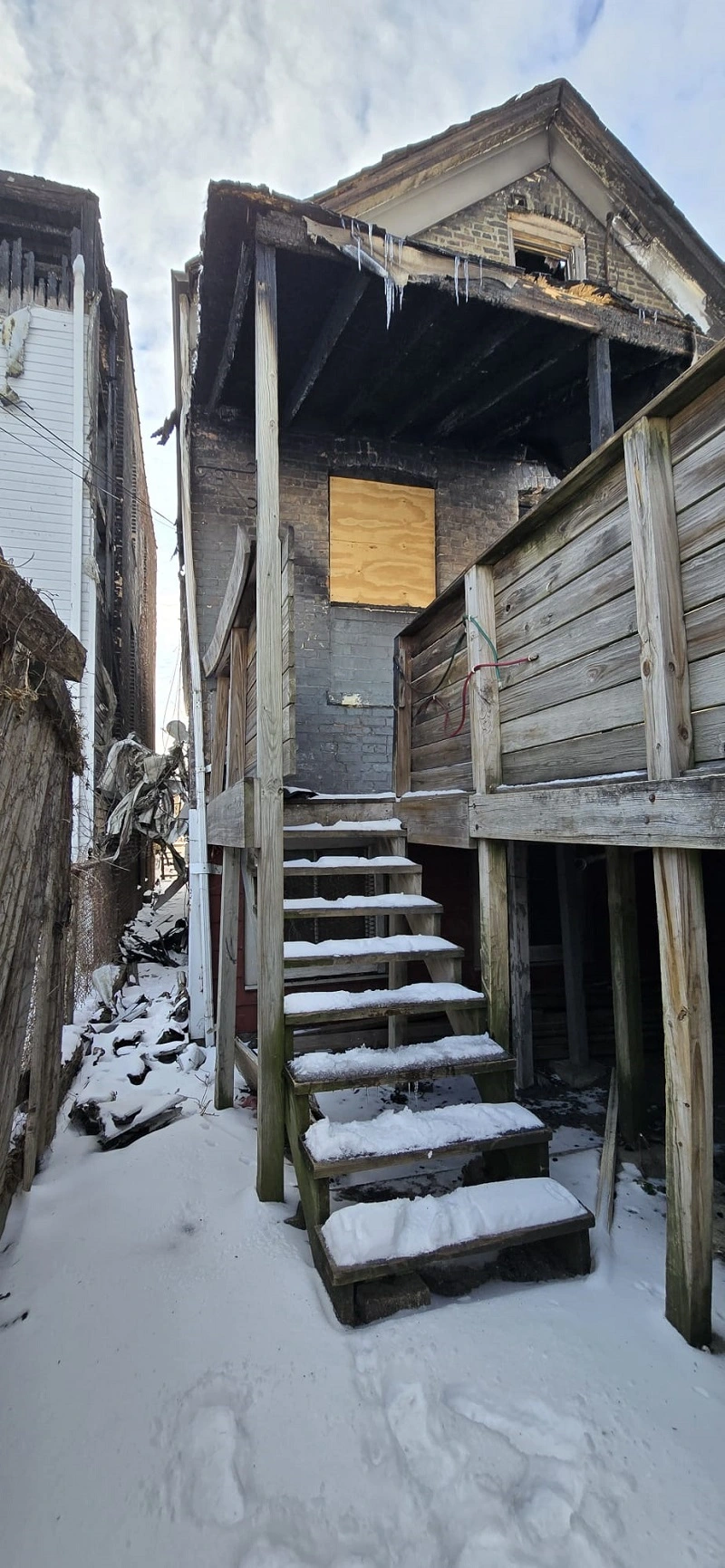
Chicago, Illinois has 98 fire stations operated by the Chicago Fire Department. This network of stations serves the entire city, making it one of the largest municipal fire departments in the United States.
Fire restoration costs in Chicago typically range from $4 to $7 per square foot, with the average total restoration cost falling between $8,000 and $18,000 for a standard-sized home. The exact price depends on factors such as the size of the property, the extent and type of fire damage, and the specific restoration services required.
Typical Cost Ranges:
- Small homes (1,000 sq. ft.): $4,000 – $7,000
- Medium homes (2,000 sq. ft.): $8,000 – $14,000
- Large homes (2,500+ sq. ft.): $10,000 – $28,000
National and Chicago Averages:
- Nationally, the average fire damage restoration cost is about $20,470, with most projects in Chicago ranging from $3,107 to $51,243 depending on severity and home size.
- For severe fires that require extensive rebuilding or restoration, costs in Chicago can exceed $50,000, and in rare, extreme cases, may reach or surpass $80,000.
Breakdown of Restoration Costs:
- Smoke and soot removal: $500 – $5,000
- Water damage cleanup (from firefighting): $2,000 – $6,000
- Structural repairs: $2,000 – $50,000+
- Complete restoration (including deodorizing, cleaning, and reconstruction): $3,137 – $51,541
The cost to build a new construction home in Chicago in 2025 varies widely based on location, design, and quality of finishes. Here are the current ranges and key details:
- Standard new construction: $150–$220 per square foot.
- Premium/luxury construction: $220–$650 per square foot.
- More common range: $200–$350 per square foot for most custom homes.
Typical total costs:
- Building a 2,000 sq. ft. home: $300,000–$700,000 (excluding land and permits).
- Building a 3,000 sq. ft. home: $450,000–$900,000 (excluding land and permits).
- The average cost to build a home in Chicago (excluding land) is about $380,000.
- Land costs in Chicago average around $29,300 per acre, but can be much higher depending on the neighborhood.
The Chicago real estate market in mid-2025 is showing resilience and signs of transformation, with several key trends defining its current state:
- Home Prices: Median home sale prices in Chicago are rising. In May 2025, the median sold price was $400,000, up 9.1% from the previous year. Other sources report a median sold price of $376,030, up 7.4% year-over-year. Single-family home prices increased by 6.3% in February 2025 compared to the previous year, while condo and townhome prices rose 7.5%.
- Inventory: Inventory is increasing but remains below pre-pandemic levels. There were 10,811 homes for sale in May 2025, a 13.6% increase from the previous month. This gives buyers more options, but competition is still healthy.
- Market Activity: Homes are selling relatively quickly, with an average of 26 to 49 days on the market, depending on the source. About 78% of homes sold within 30 days in May 2025. Many homes receive multiple offers, and 44.7% of homes sold above asking price last month.
- Sales Volume: The number of homes sold in May 2025 was 2,541, slightly down from 2,769 a year earlier. Closed single-family sales decreased by 12.5% year-over-year in February, but condo sales increased by 3.1%.
- Market Balance: The market is becoming more balanced. While it was recently more buyer-friendly, 2025 is seeing a shift toward equilibrium. Prices are stabilizing, and the average days on market is normalizing to 35–45 days. Suburban migration is slowing, with more buyers returning to the city, especially millennials and first-time buyers.
- Affordability: Chicago remains relatively affordable compared to coastal cities, making it attractive to buyers seeking value in a major metropolitan area.
Chicago is renowned for its vibrant mix of world-class museums, iconic architecture, scenic parks, and unique urban experiences—here are some of the city’s most celebrated attractions.
Millennium Park
Famous for the Cloud Gate sculpture (‘The Bean’), lush gardens, outdoor concerts, and interactive fountains, Millennium Park is a must-see urban oasis and cultural hub in the heart of downtown.
Navy Pier
A lively waterfront destination featuring the Centennial Wheel, boat rides, public art, events, and the Chicago Children’s Museum, Navy Pier is a family favorite and one of the Midwest’s top-visited attractions.
Art Institute of Chicago
This world-class art museum houses an extensive collection from Monet to modern masters, making it a top destination for art lovers and consistently ranked among the best museums globally.
Willis Tower
The Skydeck offers breathtaking city views from the 103rd floor and the thrilling glass-floored Ledge, providing a unique perspective of Chicago’s iconic skyline.
Riverwalk
This scenic pedestrian path along the Chicago River features dining, public art, and access to popular boat tours, offering a vibrant way to experience the city’s architecture and waterfront.
Shedd Aquarium
Located on the Museum Campus, Shedd Aquarium is renowned for its diverse marine life exhibits and immersive aquatic experiences, appealing to visitors of all ages.
Field Museum
Home to world-famous fossils like SUE the T. rex and Máximo the Titanosaur, the Field Museum is a premier destination for natural history and science enthusiasts.
Adler Planetarium
America’s first planetarium offers interactive astronomy exhibits and stunning lakefront views, making it a favorite for families and space lovers.
875 North Michigan Avenue
This observation deck atop the former John Hancock Center boasts panoramic views, interactive exhibits, and the exhilarating TILT experience, setting it apart from other city vistas.
Lincoln Park Zoo
One of the few free zoos in the country, Lincoln Park Zoo offers a fun, educational experience with a wide range of animals in a beautiful park setting.
Grant Park
Known as ‘Chicago’s front yard,’ Grant Park is home to major events, gardens, and landmarks like Buckingham Fountain, serving as a green centerpiece for downtown exploration.
Clarence F. Buckingham Memorial Fountain
This historic, ornate fountain is a beloved Chicago landmark, famous for its impressive water and light shows, especially in the summer evenings.
Chicago is a city of diverse and vibrant neighborhoods, each with its own character, history, and attractions. Here are some of the most well-known neighborhoods in Chicago:
- Lincoln Park: Known for its namesake park, the zoo, and upscale residential streets.
- Hyde Park: Home to the University of Chicago and the Museum of Science and Industry, with a rich cultural scene.
- Logan Square: Famous for its creative energy, historic architecture, and the Bloomingdale Trail.
- Wicker Park/Bucktown: Renowned for artsy vibes, indie boutiques, music venues, and trendy dining.
- Lake View: Includes the lively Wrigleyville area and is home to the Chicago Cubs.
- Andersonville: Noted for its unique shopping, historic architecture, and Swedish heritage.
- Pilsen: Celebrated for its vibrant murals, Mexican culture, and dynamic food scene.
- The Loop: Chicago’s downtown core, home to business, theaters, Millennium Park, and iconic architecture.
- River North: Known for its galleries, nightlife, and proximity to downtown.
- West Town: A large area encompassing trendy sub-neighborhoods like Ukrainian Village and Noble Square.
- Chinatown: A bustling district with authentic restaurants, shops, and cultural landmarks.
- Old Town: Popular for its historic homes, comedy clubs, and boutique shopping.
- Northalsted (Boystown): The nation’s first officially recognized gay neighborhood, known for its inclusive nightlife and events.
- Beverly: A leafy, residential area with architecturally significant homes and a village-like feel.
- Edgewater: Lakeside neighborhood with beaches, historic districts, and diverse dining.
- Forest Glen: Noted for its suburban feel, safety, and access to parks and trails.
Sell My Fire-Damaged House in Chicago – Buyer Options & Steps
Fire damage can transform a cherished Chicago home into an overwhelming challenge overnight. The path forward might seem unclear as you balance emotional attachments with practical decisions about your property’s future.
Yet even with smoke damage or structural issues, selling your fire-damaged house can be a manageable process with the right approach and knowledge.
The Chicago real estate market offers several paths for homeowners facing fire damage. From working with specialized cash buyers to exploring traditional sale options, you have more choices than you might realize.
Understanding these options helps you make confident decisions about your property’s future while guiding insurance claims and damage assessments.
Property investors and real estate professionals across Chicago regularly work with fire-damaged homes, often providing quick solutions that bypass lengthy repair processes. Whether you’re dealing with minor smoke damage or major structural issues, you’ll discover practical strategies for maximizing your property’s value and finding the right buyer.
Learn how to handle insurance claims, understand legal requirements, and strategically position your property in the Chicago market to transform this challenge into a successful sale.
Immediate Steps After Fire Damage
Fire damage can be devastating, and I’ve seen firsthand how quick action makes all the difference when selling a fire-damaged property in Chicago. Let’s walk through the essential first steps that will help protect your investment and maximize your property’s resale potential.
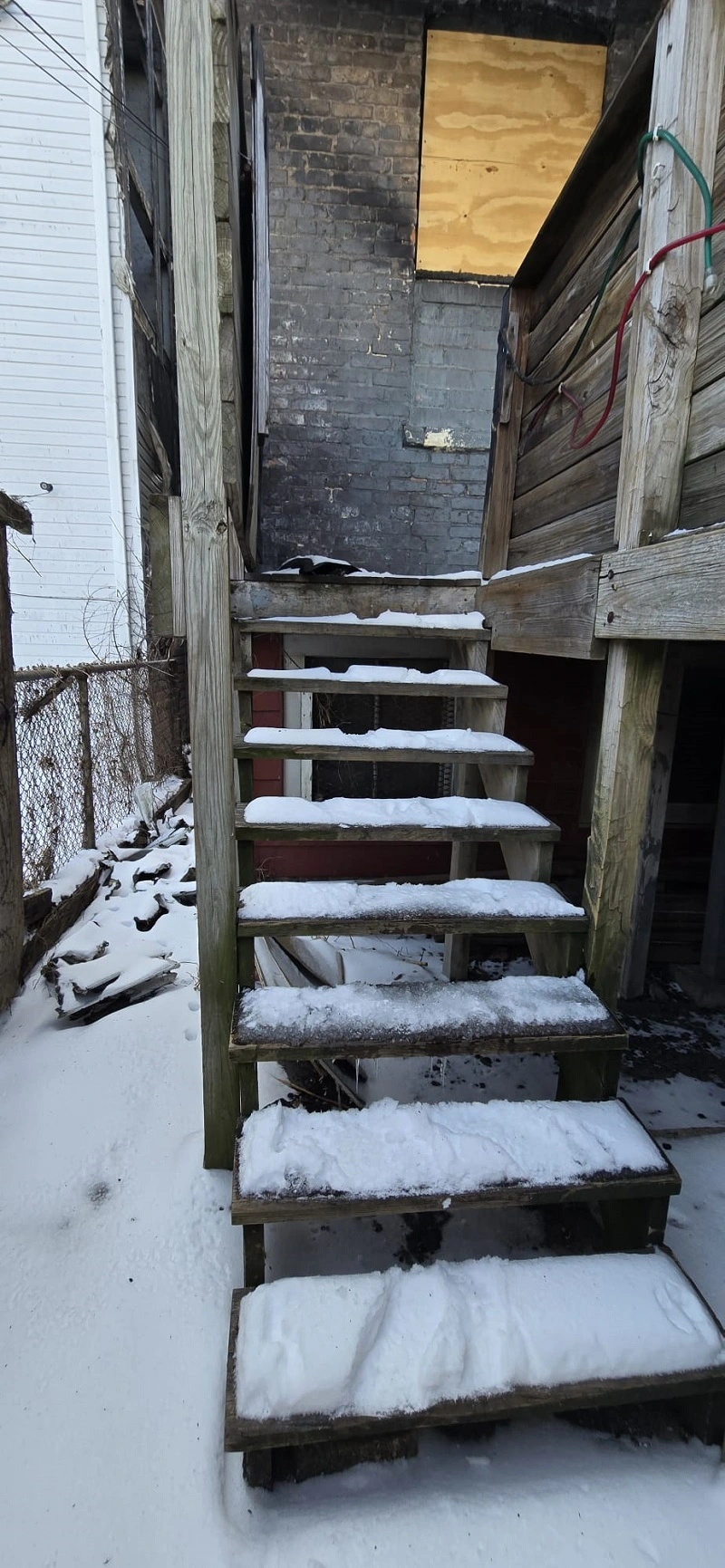
Safety Assessment and Documentation
Your safety comes first. Always obtain written clearance from the fire department before stepping foot on your property. Once you’re cleared to enter:
• Take extensive photos and videos of all damage
• Document both obvious fire damage and hidden issues
• Capture smoke and water damage from firefighting efforts
• Create a detailed inventory of damaged items
• Store all documentation in a digital and physical format
These visual records will be your strongest ally during insurance claims and buyer negotiations.
Insurance Claims Process
Time is critical when dealing with insurance. Here’s what you need to do:
• Contact your insurance company immediately
• Record your claim number and adjuster’s contact information
• Save all email correspondence and phone call notes
• Track every expense related to the damage
• Request a detailed breakdown of your coverage
• Document temporary housing costs
I’ve learned that precise record-keeping during this phase can save countless headaches down the road, especially when you’re ready to list your property.
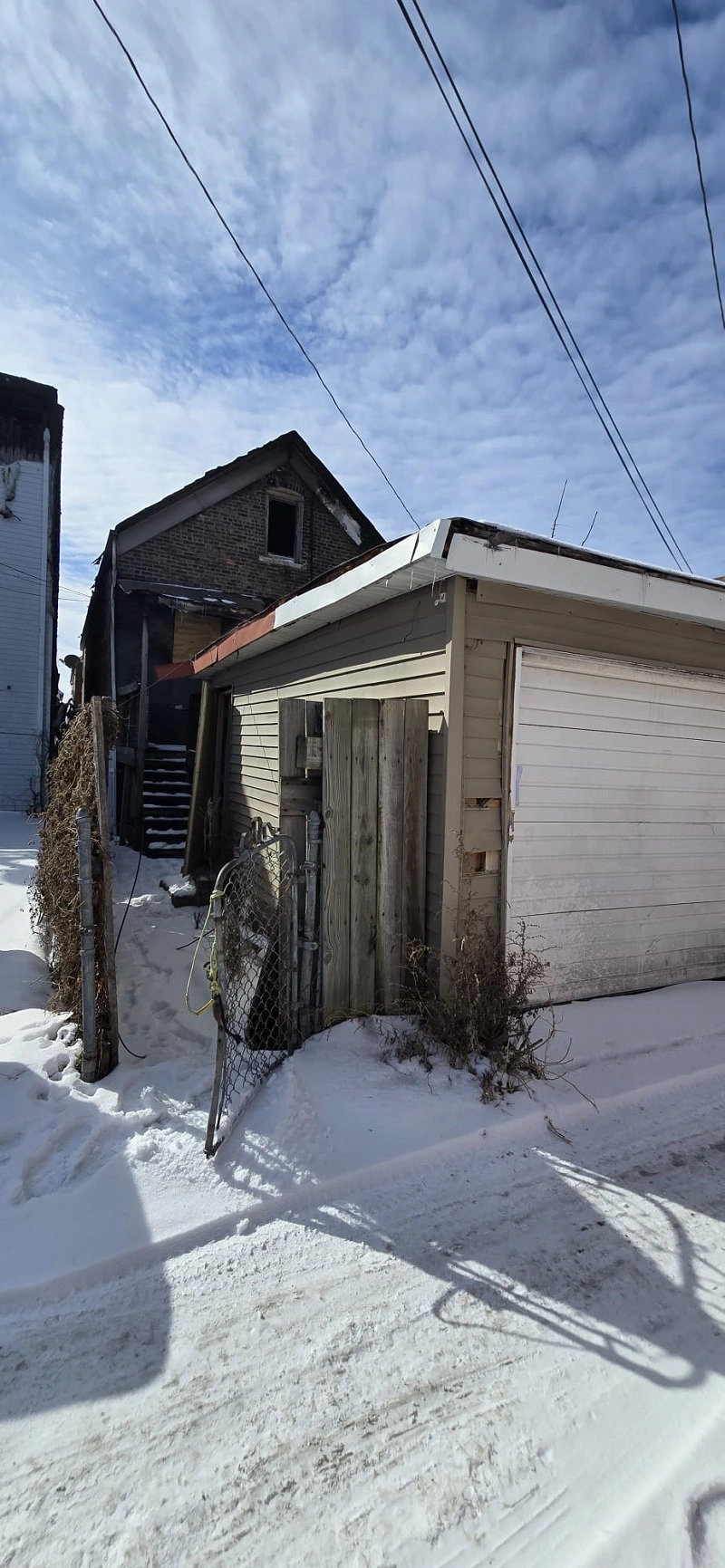
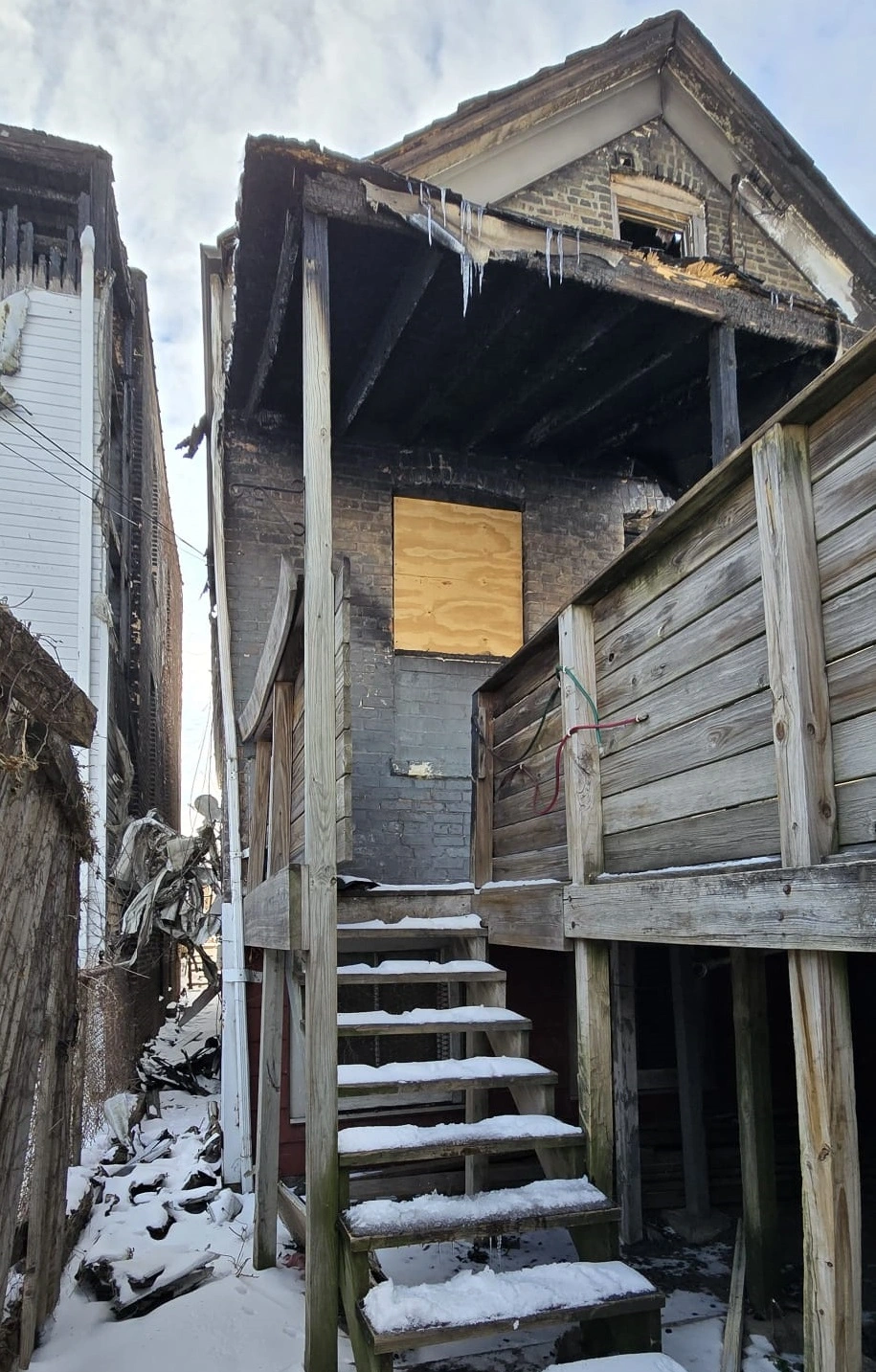
Professional Damage Evaluation
Getting expert eyes on your property is crucial. Based on my experience working with fire-damaged homes, you’ll need:
• Structural engineer assessment
• Fire damage restoration specialist inspection
• Detailed written reports of all findings
• Cost estimates for necessary repairs
• Professional recommendations for restoration
These evaluations provide the concrete data buyers need to make informed decisions about your property.
Temporary Property Protection Measures
Protecting your property from further damage is essential. Here’s what needs immediate attention:
• Board up broken windows and doors
• Cover roof damage with heavy-duty tarps
• Install proper ventilation systems
• Set up temporary fencing around the property
• Place warning signs where necessary
• Monitor the property regularly
Keep every receipt and document all protective measures taken. I’ve found that buyers appreciate seeing a detailed record of the steps taken to preserve the property, as it demonstrates responsible ownership despite challenging circumstances.
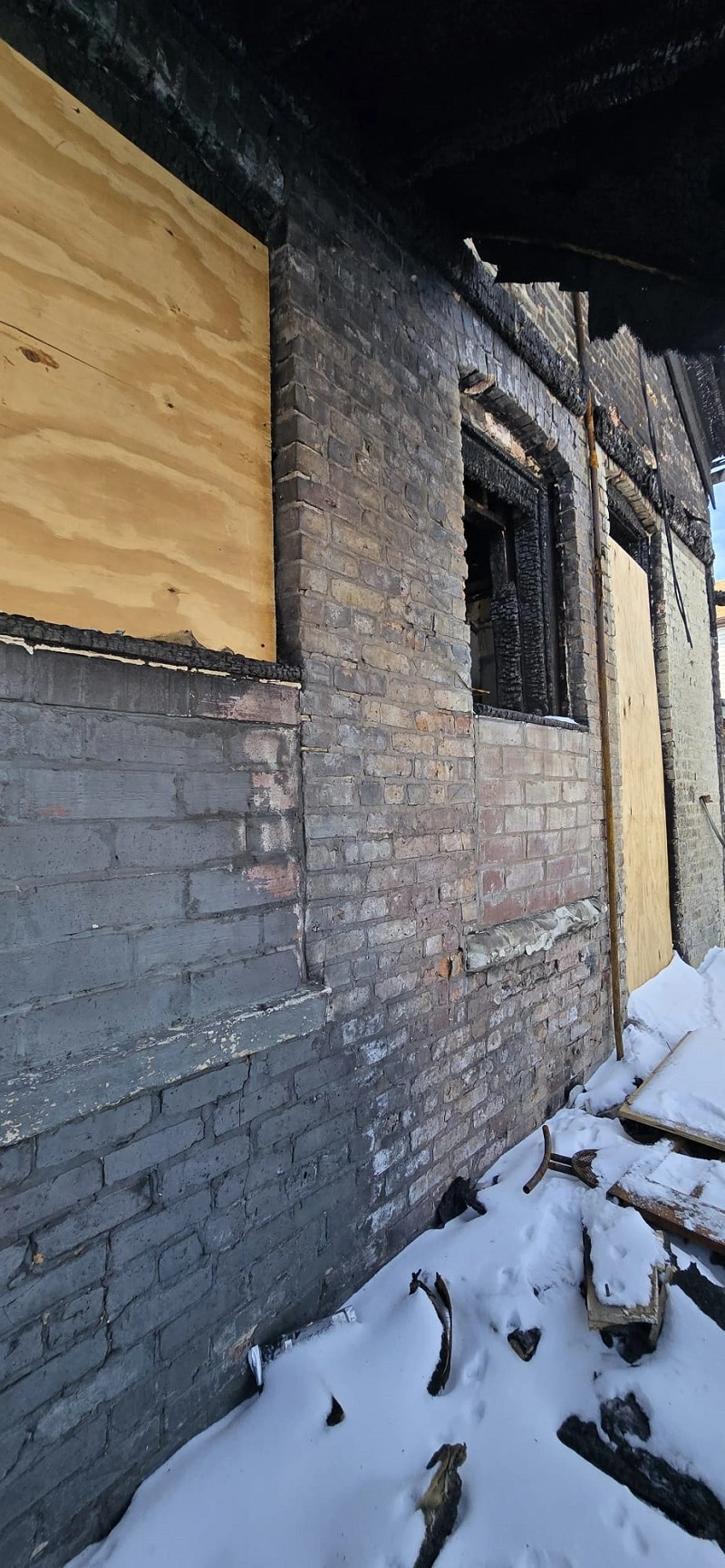
Evaluating Your Selling Options
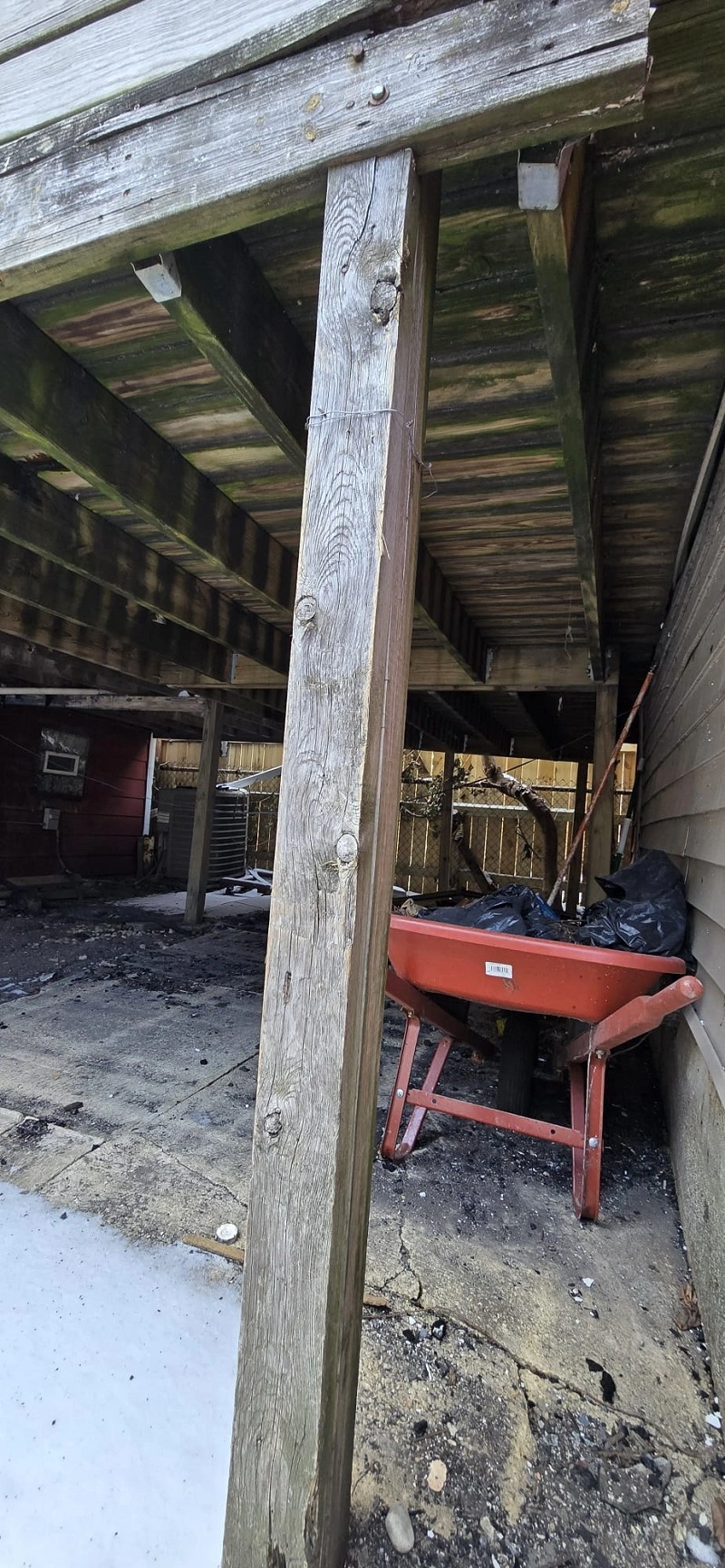
Selling As-Is Vs. Repairing
After securing your fire-damaged property, making informed decisions about your next steps can significantly impact your financial outcome. Let me guide you through the key considerations I’ve learned from working with numerous property owners in similar situations.
Cost-Benefit Analysis
I’ve seen many property owners struggle with this decision, and here’s what you need to know: A complete restoration might set you back $50,000-$100,000, but it could boost your final selling price substantially. On the flip side, selling as-is to cash buyers or investors offers a hassle-free solution with zero renovation costs. Here in Chicago, several reputable investors specialize in fire-damaged properties and can often close within days.
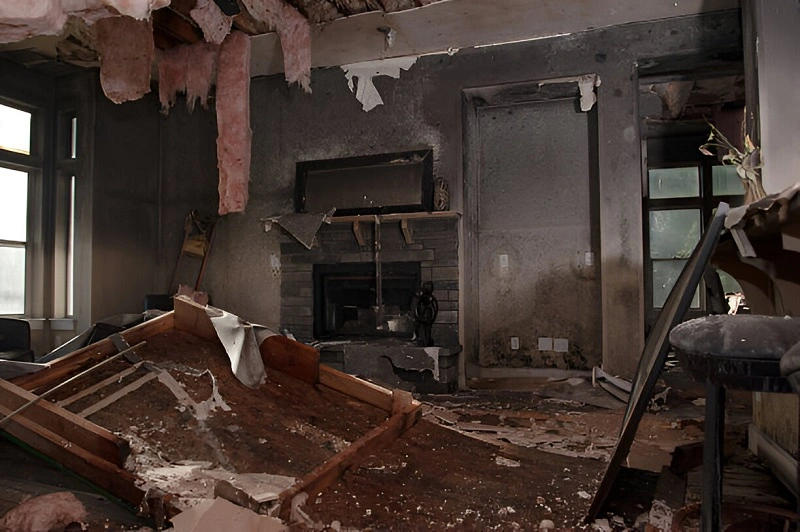
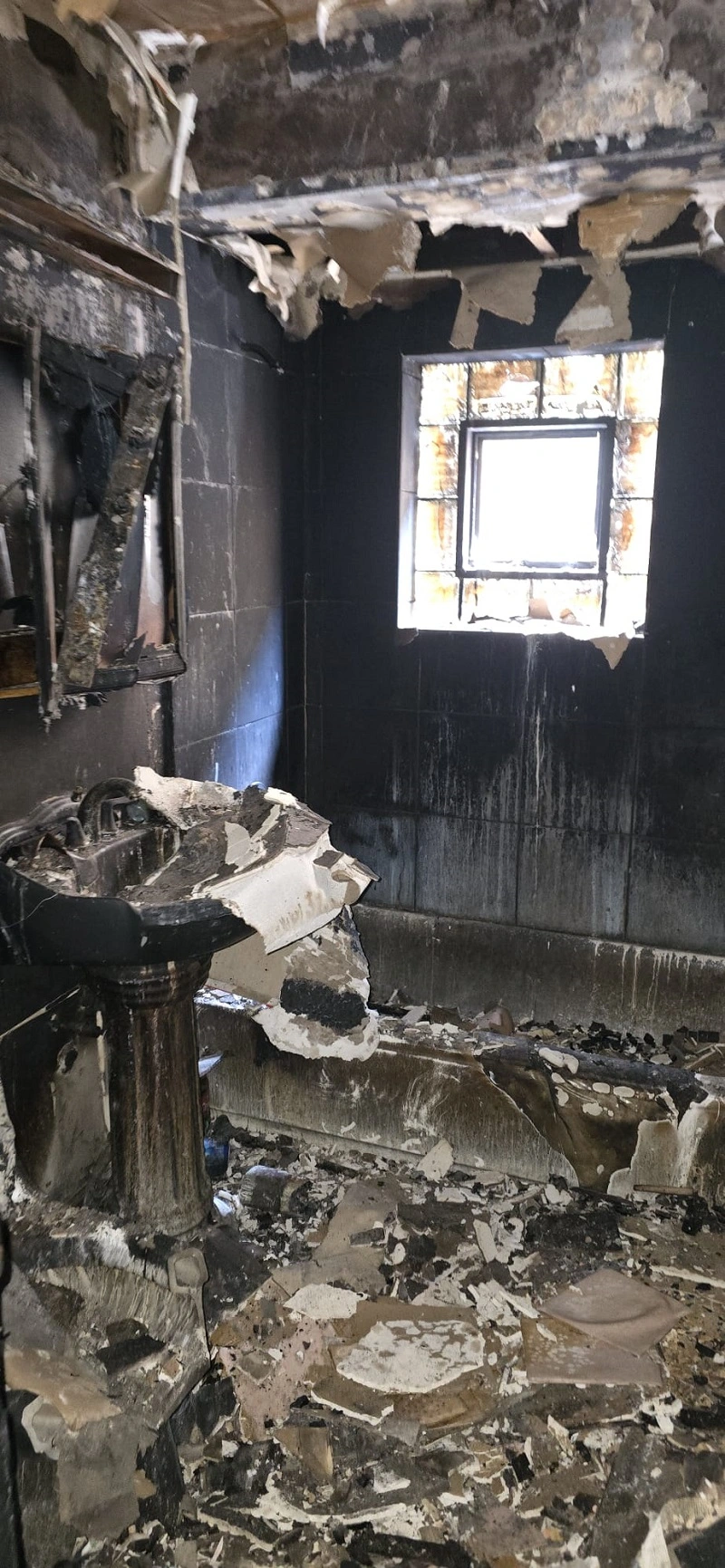
Timeline Considerations
• Full repairs: 3-6 months (depending on damage severity)
• Contractor selection and permits: 2-4 weeks
• Insurance claim processing: 30-60 days
• As-is sale closing: Often 7-14 days
Your personal circumstances, including ongoing mortgage obligations, insurance requirements, and immediate cash needs, should guide this decision.
Current Market Conditions In Chicago
The local real estate terrain directly impacts your property’s potential. Having worked in various Chicago markets, I’ve noticed that even fire-damaged properties can command competitive prices in high-demand areas. Your property’s location, local renovation trends, and neighborhood development plans all play crucial roles in determining the best selling strategy.
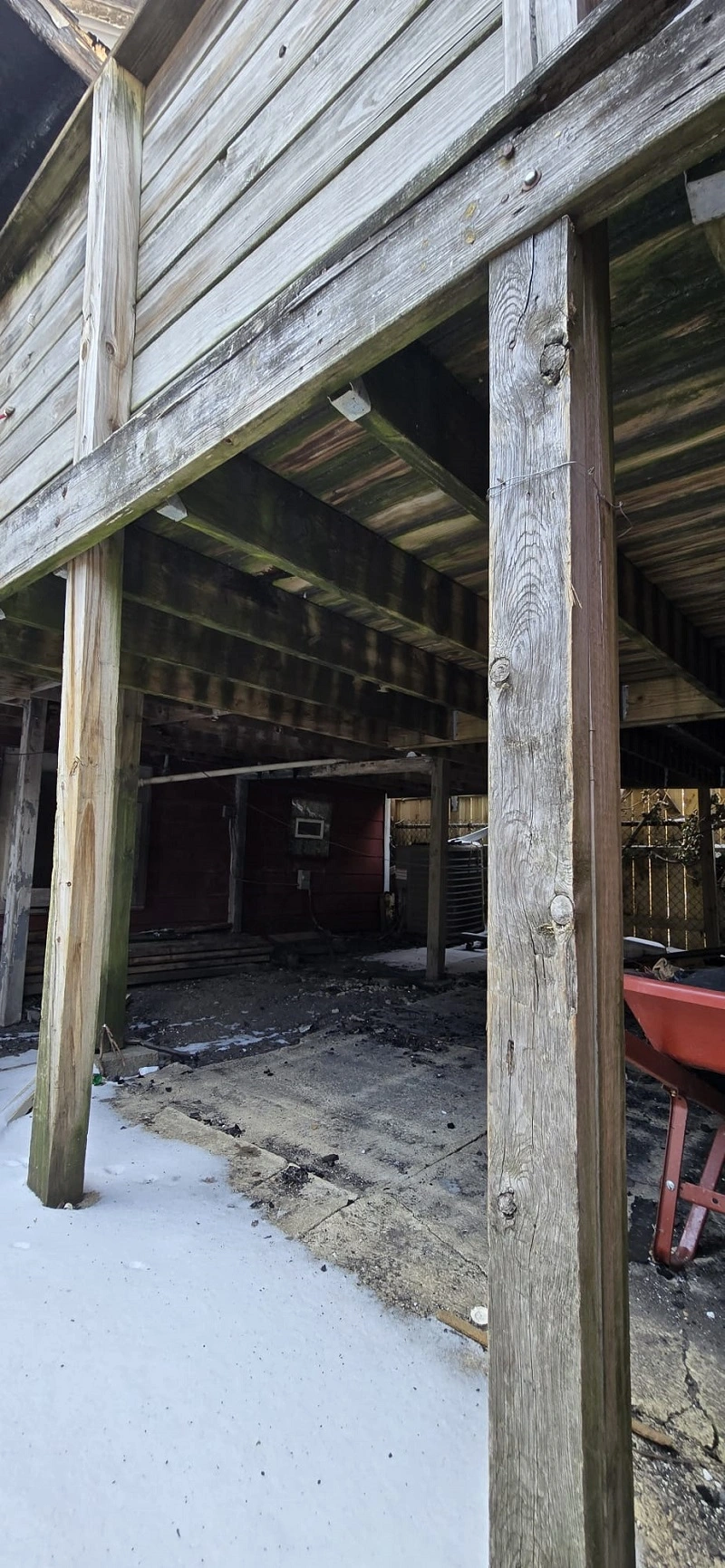
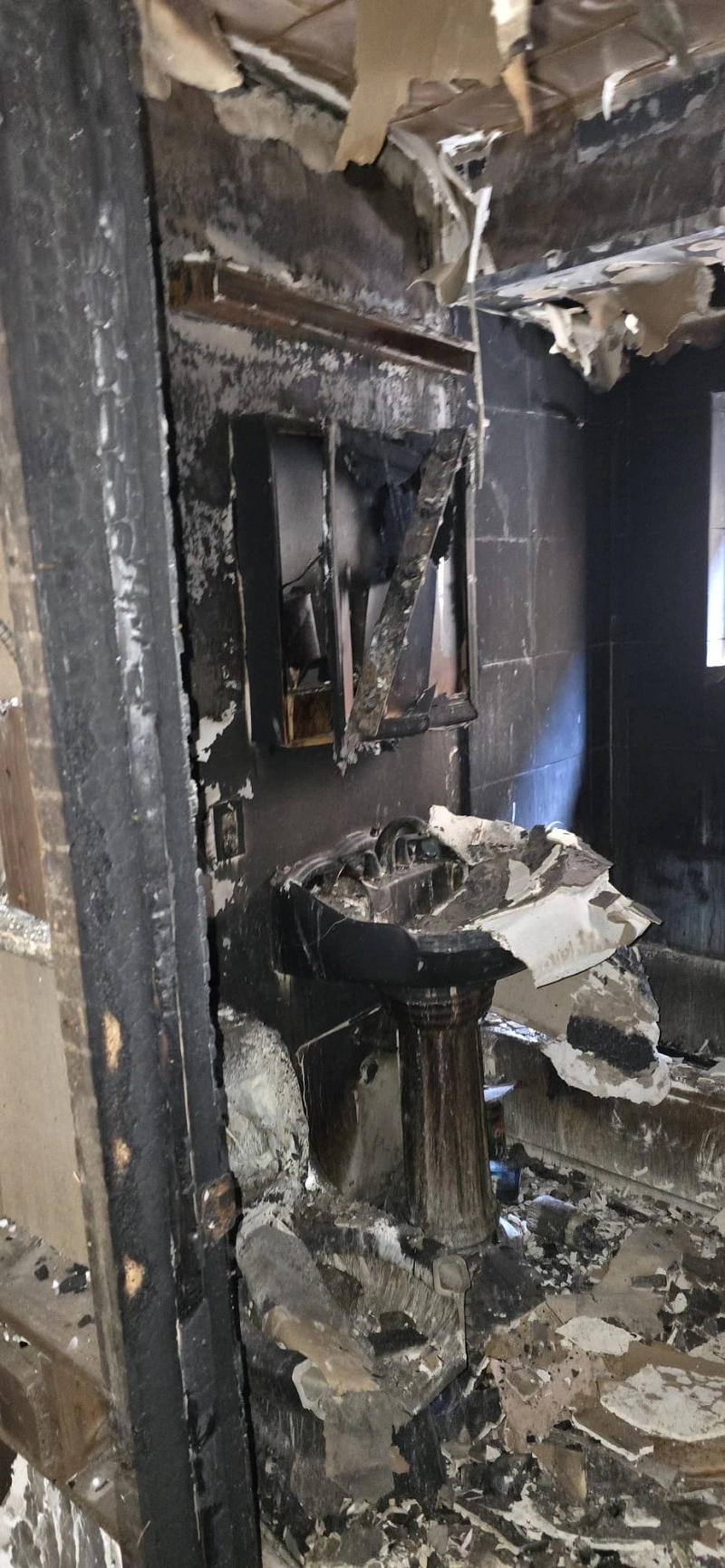
Property Value Assessment Methods
To accurately determine your property’s current value, consider these essential factors:
• Pre-fire property value
• Extent of fire damage and estimated repair costs
• Current land value
• Recent sales of similar damaged properties
• Local demand for renovation projects
• Neighborhood development trends
• Zoning restrictions and building codes
Professional appraisers with expertise in fire-damaged properties provide the most reliable valuations, often uncovering potential worth you might have overlooked.
Financial Implications Of Each Option
Let’s break down the financial impact of your choices:
As-Is Sale Benefits:
• Immediate cash availability
• No repair expenses
• Zero holding costs
• Quick closing process
• Minimal paperwork
Repair and Sell Considerations:
• Upfront renovation costs
• Ongoing maintenance expenses
• Insurance premium adjustments
• Property tax obligations
• Mortgage payments during repairs
• Potential for higher final sale price
From my experience helping Chicago property owners explore these decisions, I’ve found that consulting with local real estate professionals who understand fire-damaged properties is invaluable. They can provide market-specific insights and help you analyze these factors against your personal financial goals and timeline needs.
Remember, whichever path you choose, maintaining complete transparency about the fire damage builds trust with buyers and protects your legal interests.
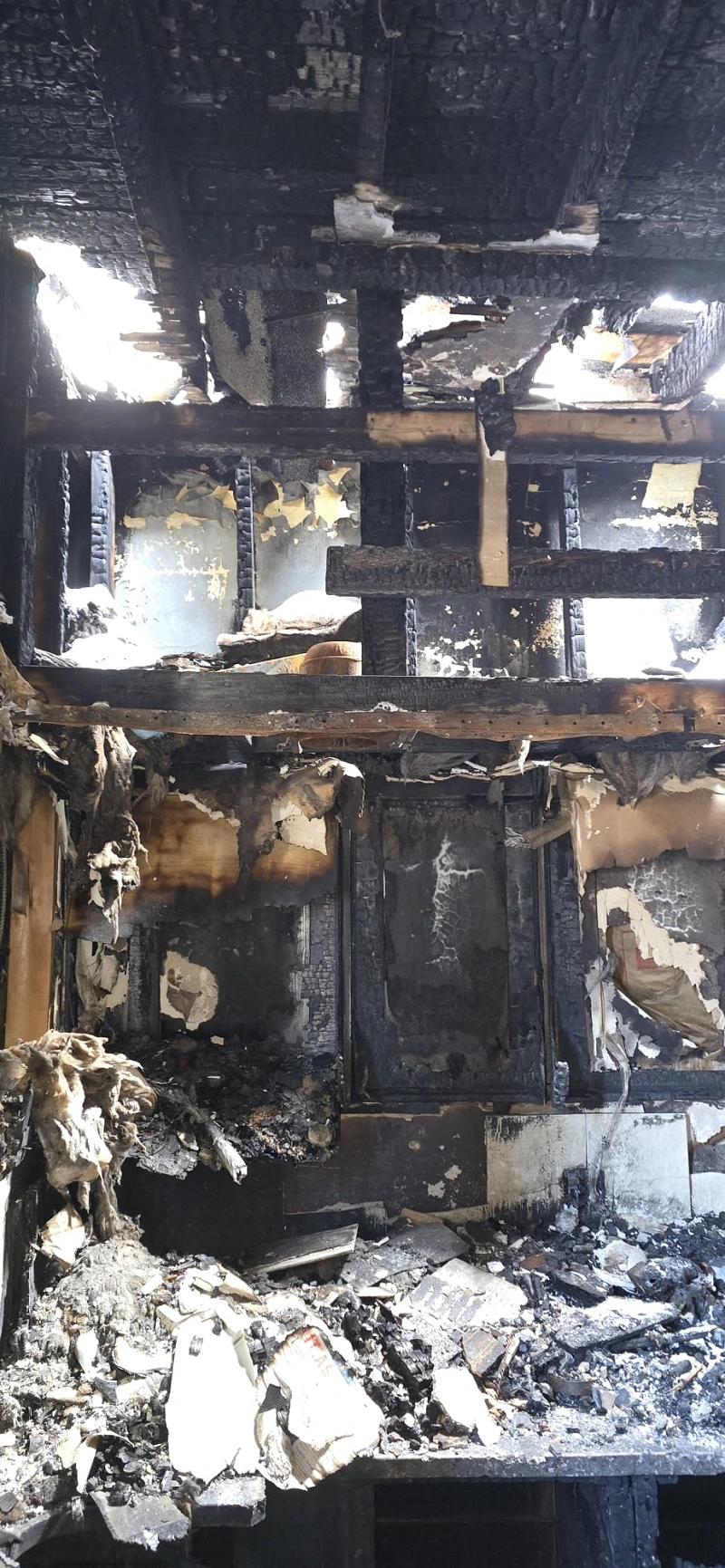
The Selling Process In Chicago
Selling a fire-damaged property in Chicago comes with specific legal obligations that protect both you and potential buyers. I’ve helped many property owners understand these requirements, and clarity is absolutely crucial.
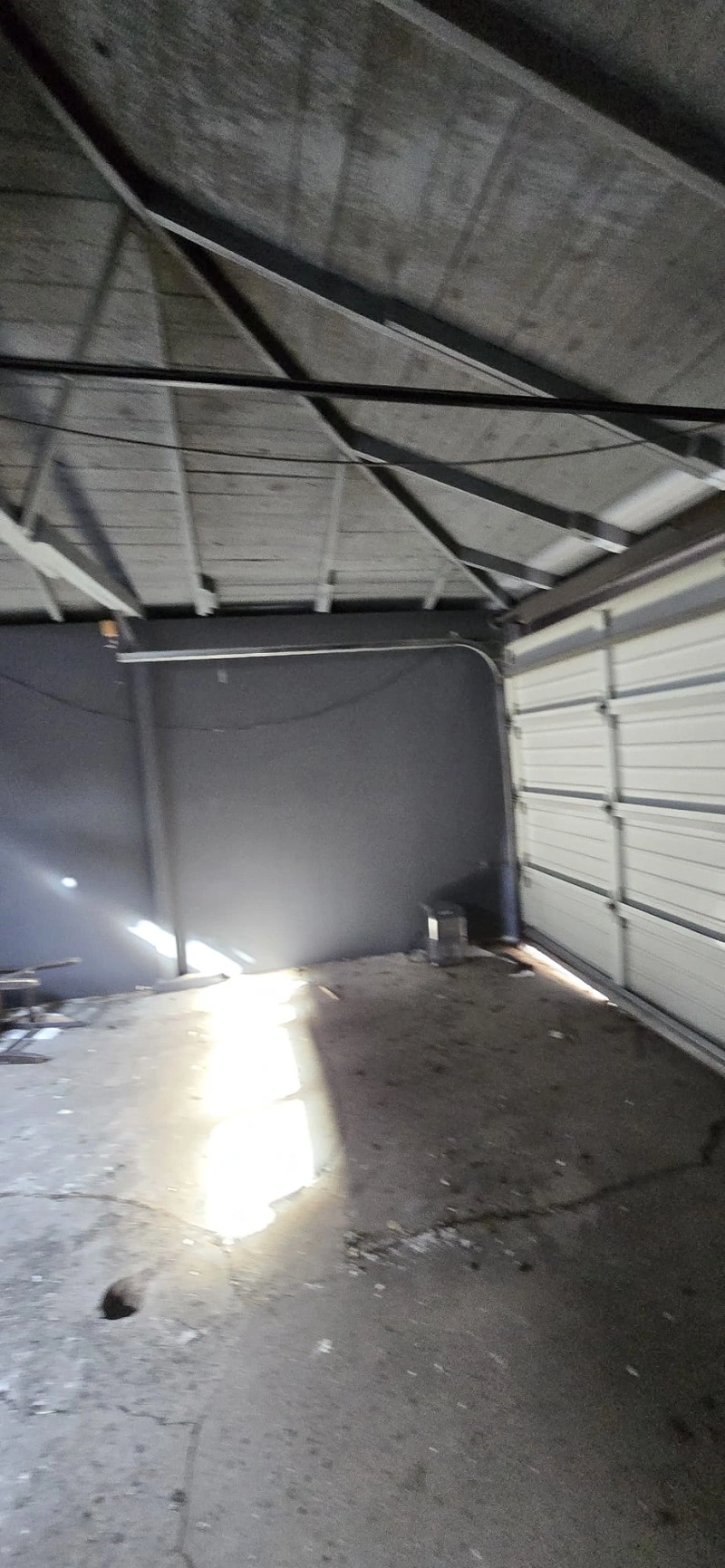
Legal Requirements And Disclosures
You must provide detailed information about the fire damage extent, including any structural issues, electrical problems, or pending insurance claims. Think of it as creating a detailed roadmap of the property’s condition – this not only fulfills legal requirements but also builds trust with serious buyers.
Property Documentation Needed
When selling a fire-damaged house, having the right paperwork ready can make or break your sale. Here’s what you’ll need to gather:
• Fire incident reports from local authorities
• Insurance claim documentation and settlement papers
• Repair estimates or completed work invoices
• Building inspection reports
• Permits for any completed repairs
• Professional assessment reports of remaining damage
Having these documents organized and readily available helps validate your asking price and gives buyers confidence in understanding exactly what they’re considering purchasing.
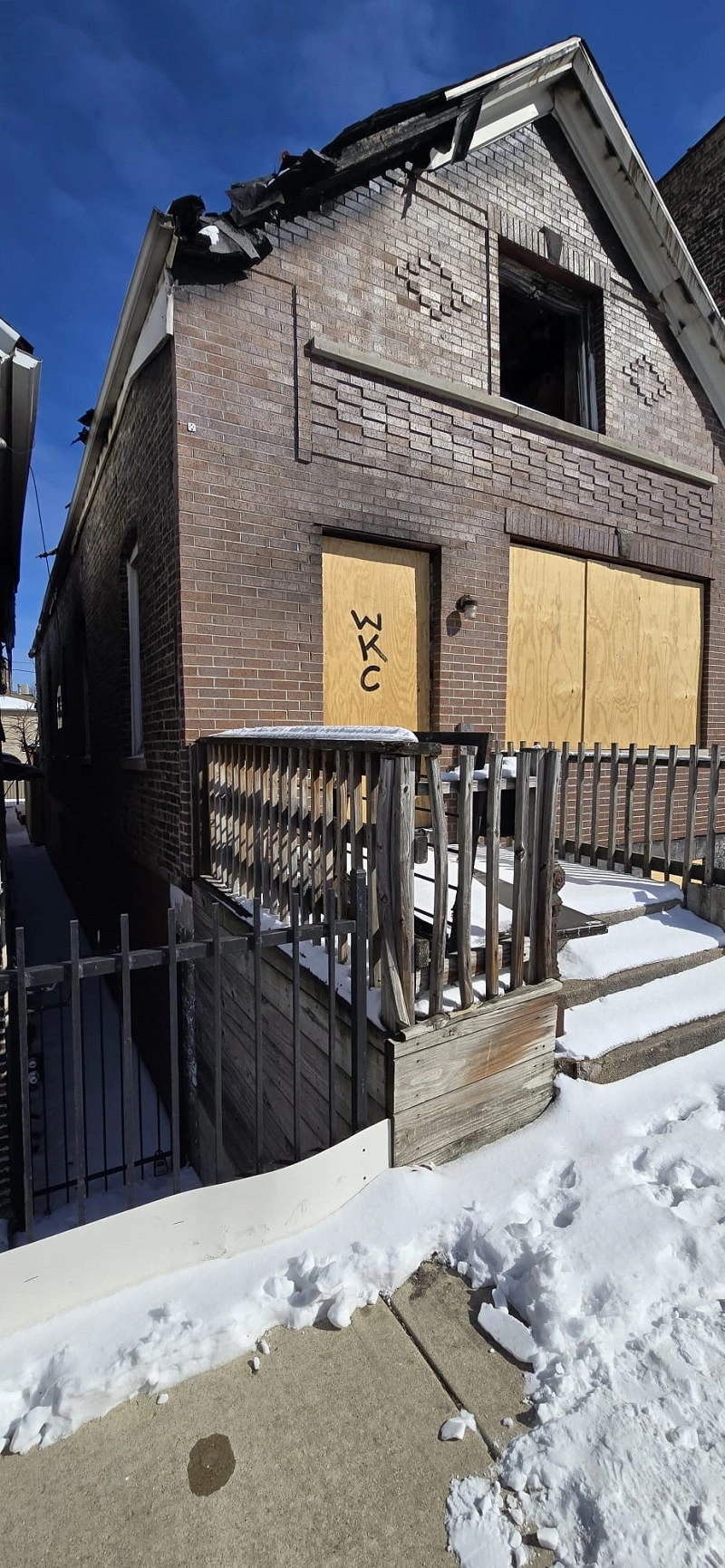
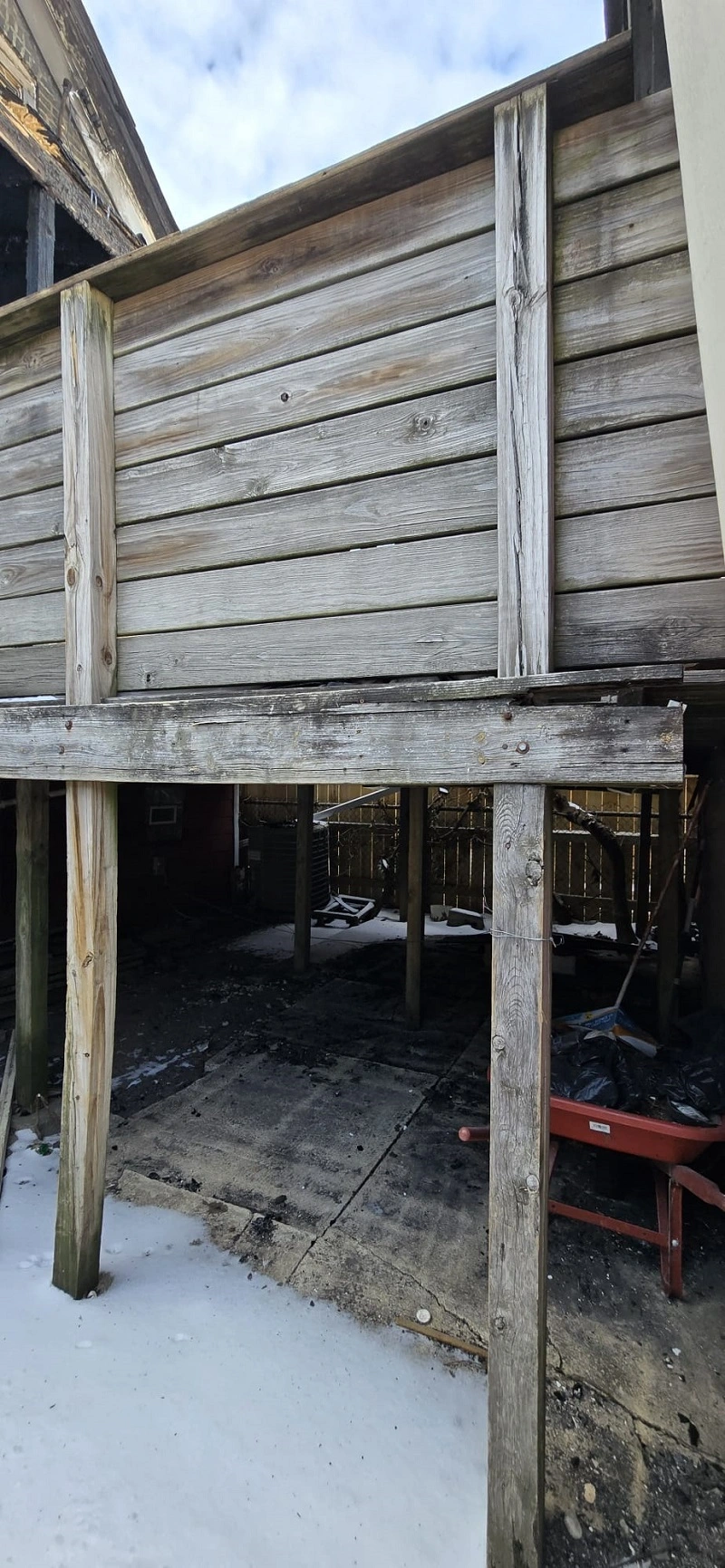
Pricing Strategies For Fire-Damaged Homes
Setting an appropriate price for your fire-damaged property requires careful consideration and market awareness. Start with a professional property assessment that compares your home’s pre-fire value against its current condition. I’ve found that successful pricing strategies often involve:
• Analyzing recent sales of similar damaged properties
• Calculating renovation costs in today’s market
• Considering the property’s location value
• Factoring in local market conditions
• Understanding investor expectations in your area
Remember, while you might have emotional attachments to your property’s original value, buyers will focus primarily on renovation costs and potential returns.
Marketing Approaches
Marketing a fire-damaged property requires a unique strategy that emphasizes potential over current condition. Through my experience, I’ve discovered that professional photographs showcasing salvageable features, like a solid foundation or prime location, can make a significant difference. Focus your marketing efforts on these key buyer groups:
• Real estate investors seeking renovation • projects
• Professional house flippers with reconstruction experience
• Cash buyers specializing in damaged properties
• Local developers interested in rebuilding opportunities
Create listings that honestly address the fire damage while highlighting valuable aspects such as:
• Prime neighborhood location
• Lot size and potential
• Surviving architectural features
• Zoning advantages
• Development possibilities
Working with real estate professionals who specialize in damaged properties can significantly improve your chances of success. These experts often maintain networks of qualified investors and understand how to position your property effectively.
Whether you choose a traditional listing or work with a direct buyer, understanding these key aspects of the selling process will help you secure the best possible outcome for your situation.
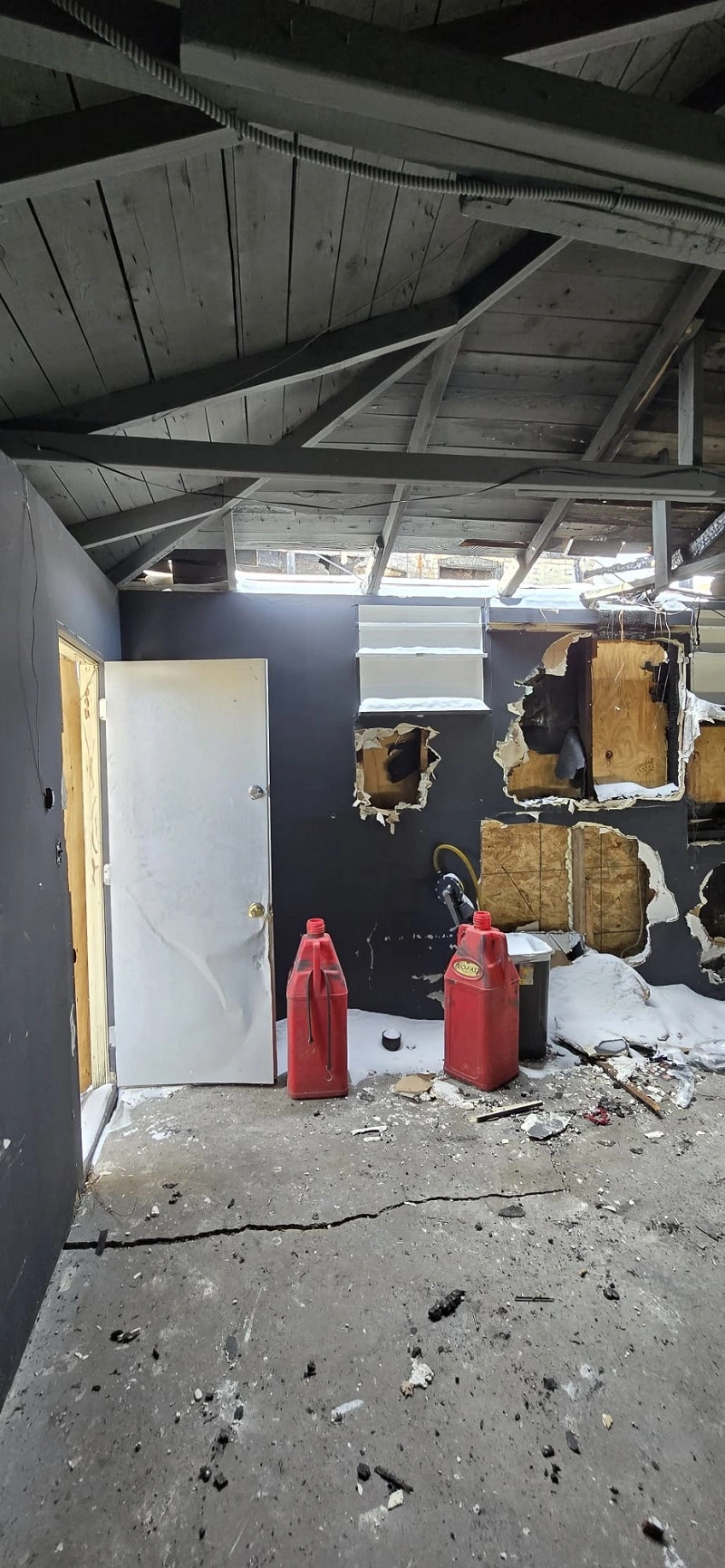
Potential Buyers For Fire-Damaged Properties
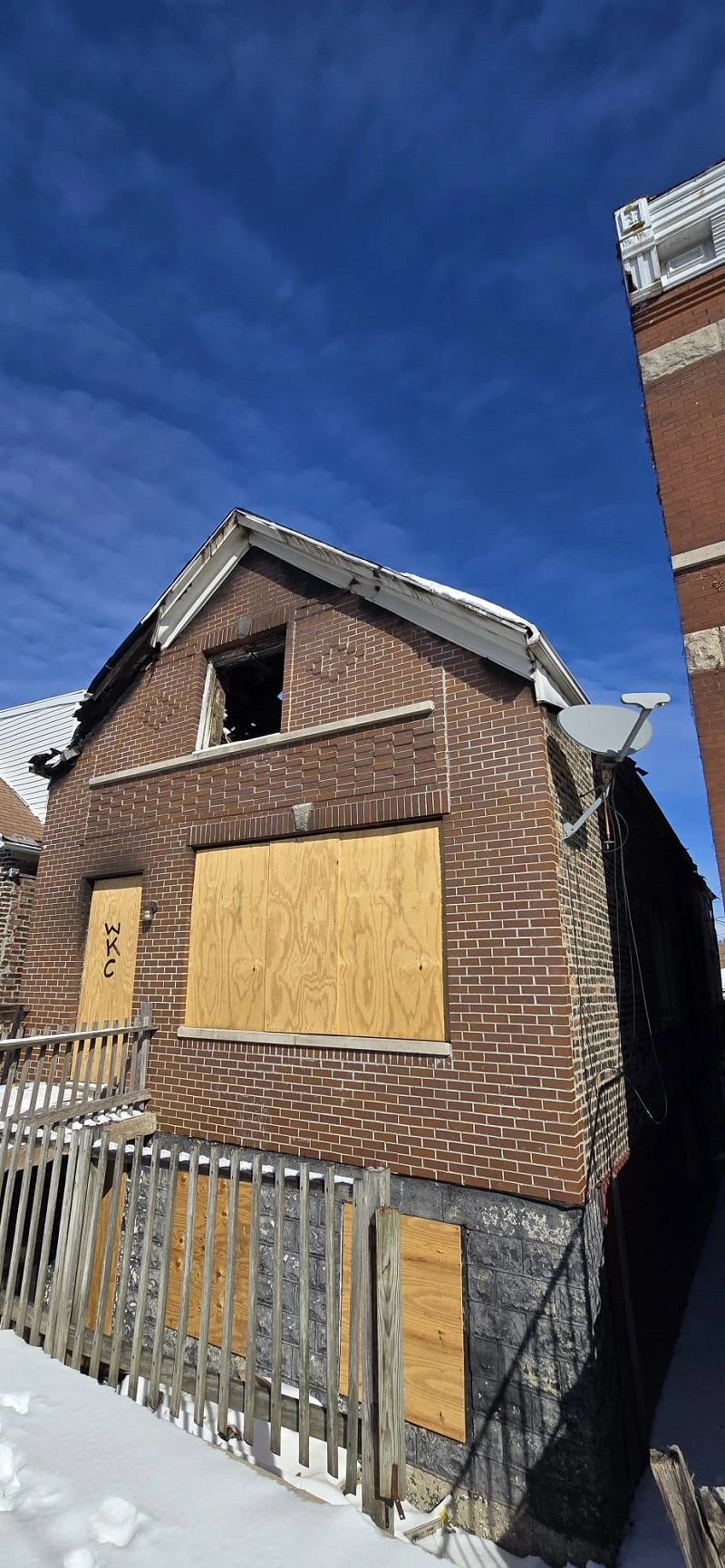
Cash Buyers And Investors
I’ve seen firsthand how cash buyers and individual investors can be your best bet when selling a fire-damaged house in Chicago. These experienced buyers know exactly what they’re looking at when evaluating damaged properties.
They’re usually ready to move quickly, often closing deals in days instead of months. While you might get less than market value, you’ll save big on repairs, realtor fees, and time – which can be worth its weight in gold when dealing with a fire-damaged property.
Real Estate Investment Companies
Professional real estate investment companies have become my go-to recommendation for many sellers with fire-damaged homes. Companies like AMI House Buyers and other Chicago investors offer some compelling benefits:
• Zero paperwork hassles – they handle everything
• No need for repairs – they buy properties as-is
• Immediate proof of funds available
• Lightning-fast closings
• Fair, transparent evaluation process
I’ve watched these companies transform countless damaged properties, and they’ve got their evaluation process down to a science. They’ll typically provide offers based on solid market data and detailed repair estimates.
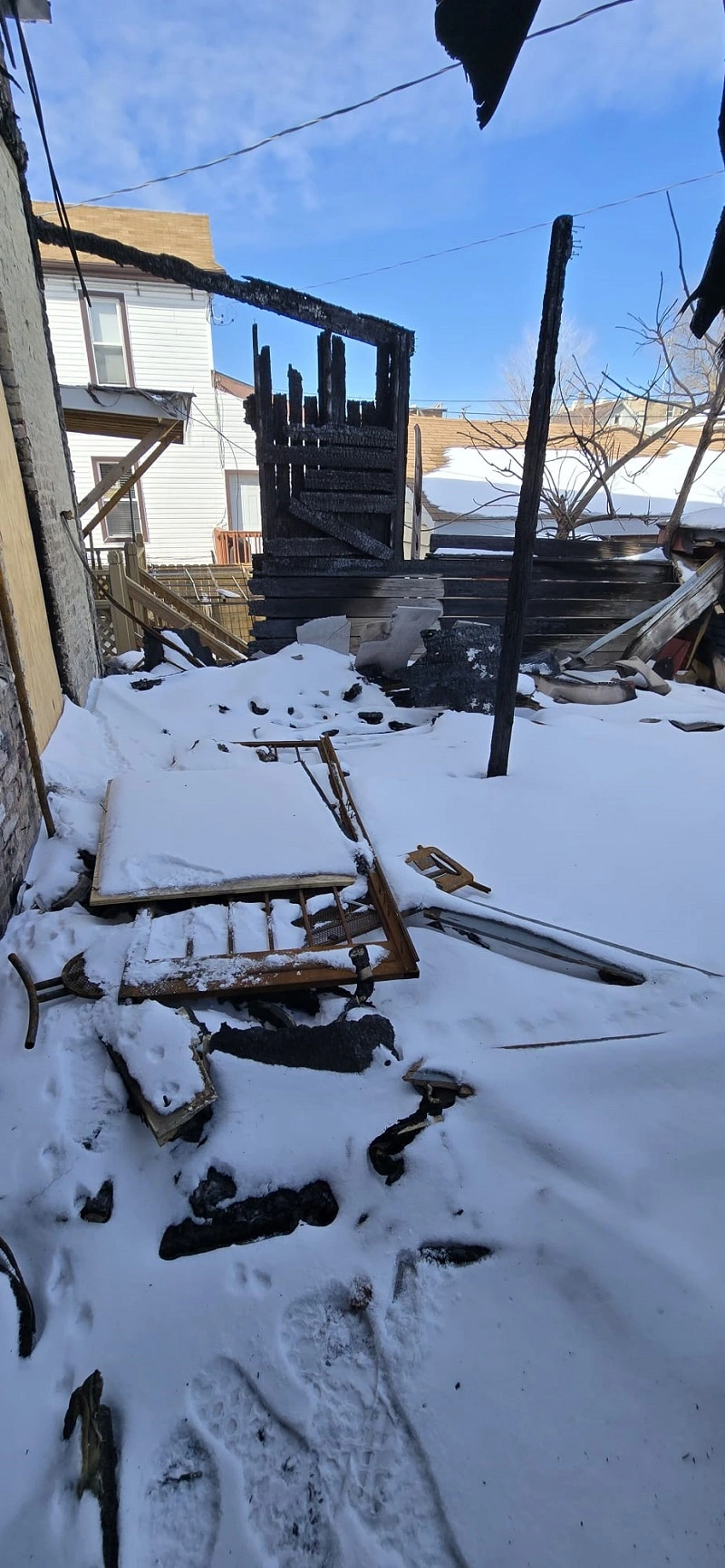

Traditional Buyers
You might be surprised, but I’ve occasionally seen traditional buyers take interest in fire-damaged properties. These brave souls usually come in two flavors: DIY enthusiasts looking for their next project, or budget-conscious buyers willing to trade sweat equity for savings.
Just keep in mind that this path requires more patience. Traditional buyers typically need financing, and banks can get squeamish about lending on damaged properties.
Property Developers
Having worked with numerous property developers, I can tell you they’re often excellent candidates for buying fire-damaged houses. They’re particularly interested when your property checks these boxes:
• Prime location with good accessibility
• Generous lot size
• Flexible zoning options
• Growing neighborhood
These buyers think big picture. They might see your fire-damaged house as the perfect spot for a complete rebuild or part of a larger development plan. In my experience, they often bring substantial resources to the table and can move quickly when they spot potential.
I’ve found that choosing the right buyer type can make all the difference in your selling experience. Each brings unique advantages – whether it’s the speed of cash buyers, the professionalism of investment companies, the potential upside with traditional buyers, or the vision of developers. The key is matching your priorities (speed, price, or convenience) with the right buyer category. Look for buyers who communicate clearly and can explain exactly how they arrived at their offer price.
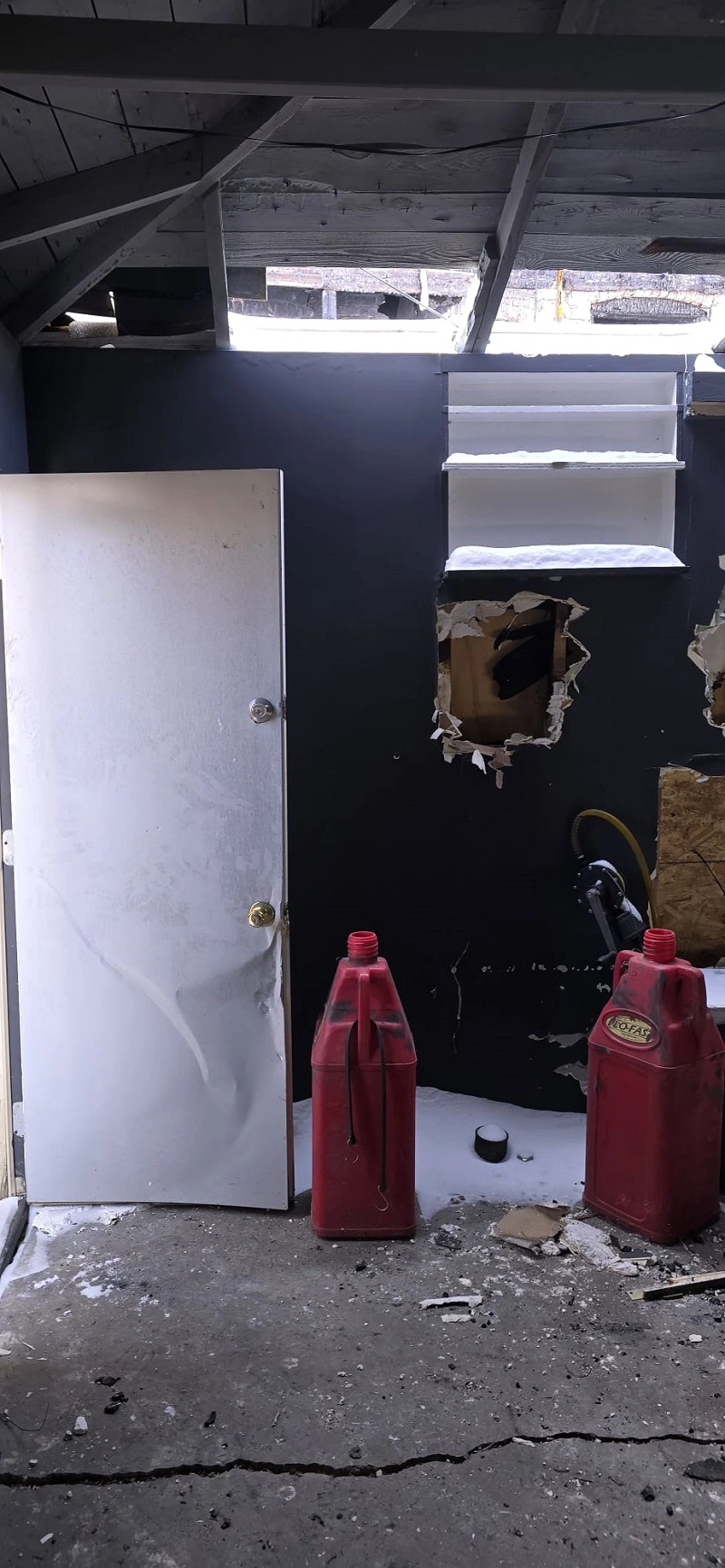
Navigating The Sale
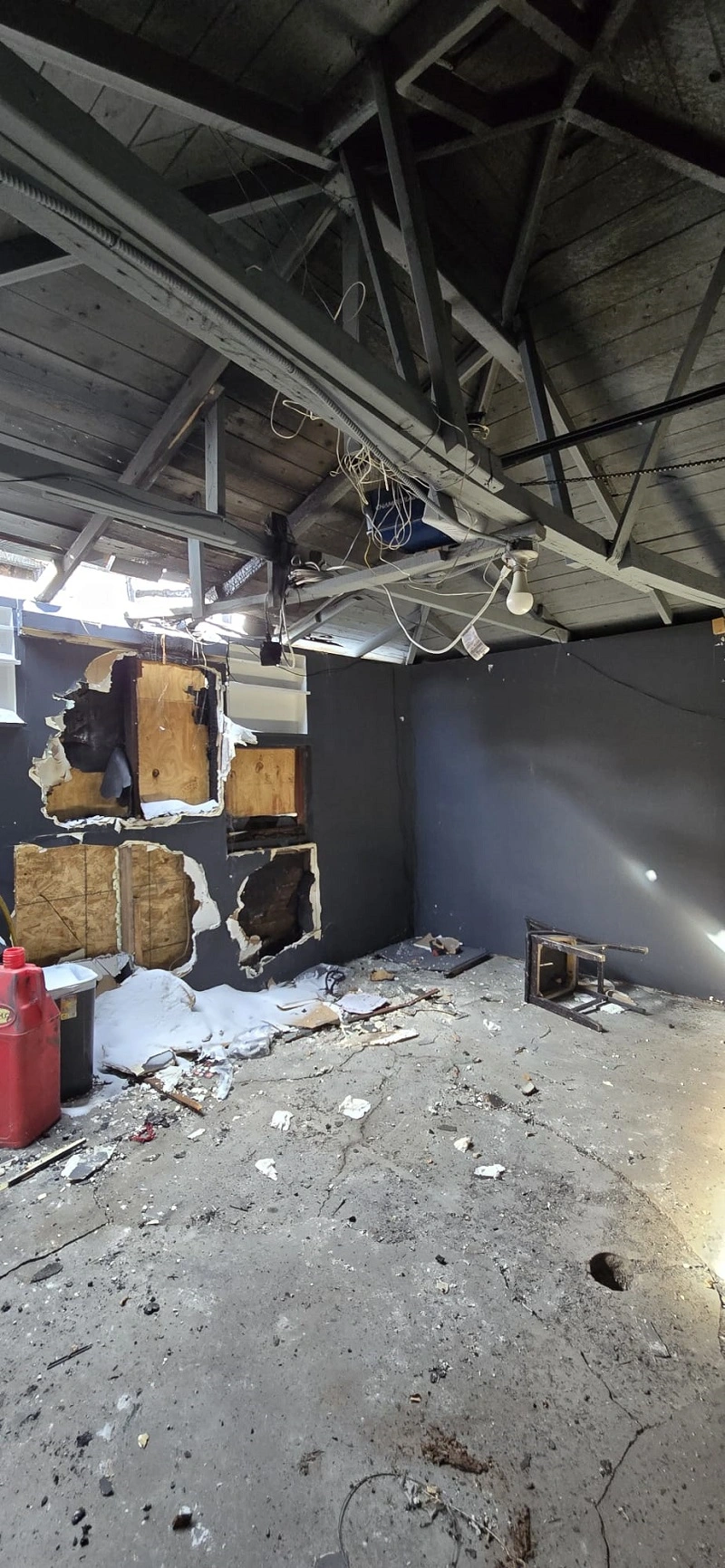
Negotiation Strategies
I’ve found that knowledge truly is power when negotiating the sale of a fire-damaged house in Chicago. Start by creating a detailed documentation package including precise damage reports, professional repair estimates, and your property’s pre-fire valuation.
This approach has consistently helped my clients establish a strong negotiating position and justify their asking price. Insurance claims and settlements play a crucial role too – having these details readily available can significantly strengthen your position at the negotiating table.
Dealing With Lowball Offers
Let’s face it – fire-damaged properties often attract lowball offers. Here’s how you can respond effectively when faced with a low offer:
• Present detailed contractor repair estimates to support your asking price
• Showcase surviving valuable features of your property
• Share recent comparable sales data from your neighborhood
• Maintain reasonable flexibility while protecting your bottom line
While multiple low offers might suggest reconsidering your price point, don’t feel rushed into accepting an unfair offer just because your property has fire damage.
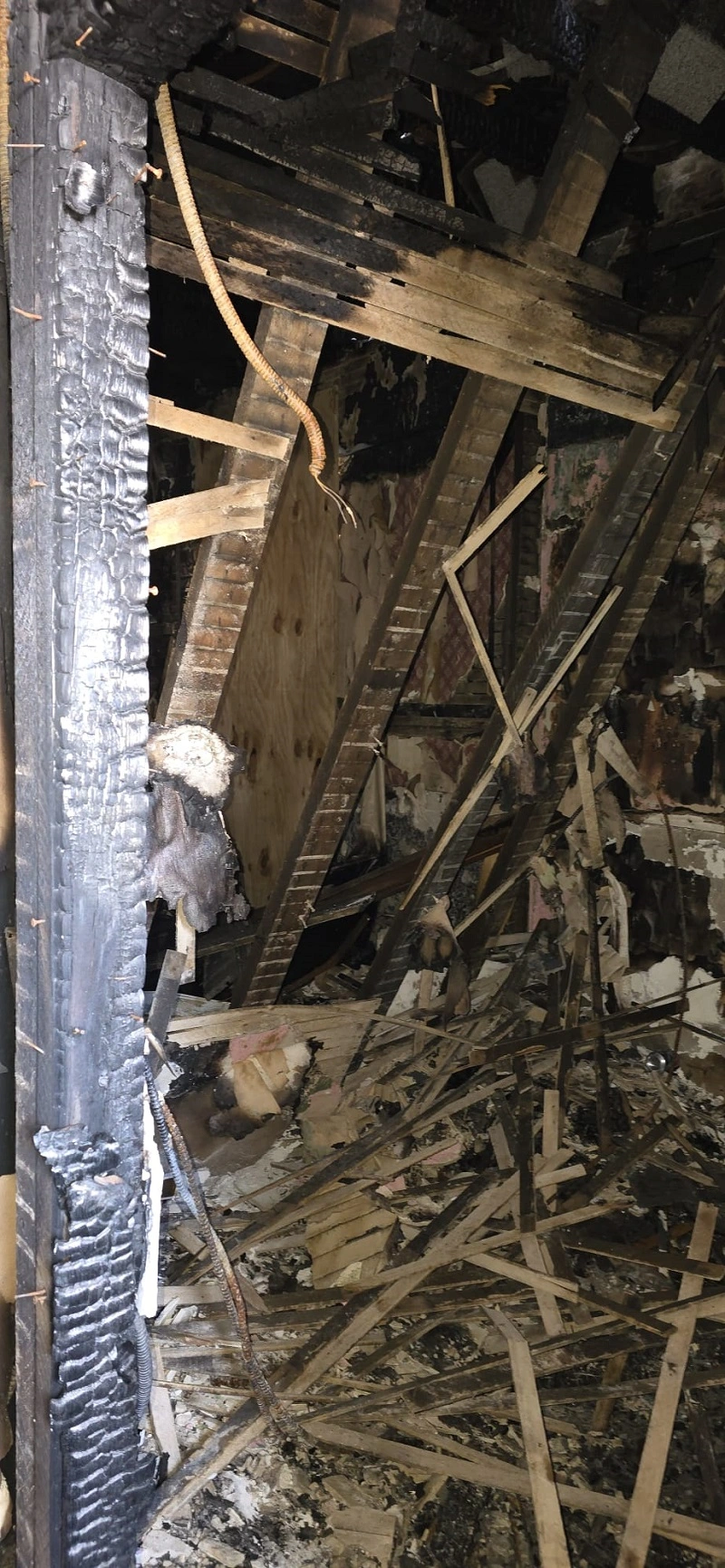

Working With Professional Buyers
Professional buyers and real estate investment companies can make selling your fire-damaged property surprisingly straightforward. From my experience working with these buyers, you can expect:
• A detailed property assessment
• Straightforward cash offers without obligation
•Complete handling of paperwork and legal requirements
• Quick closing timelines (often within 1-2 weeks)
I always recommend thoroughly checking their credentials and reading reviews from previous sellers. Reputable professional buyers maintain full transparency and welcome questions without pushing for quick decisions.
Closing Process Specifics
Successfully closing on a fire-damaged house in Chicago requires careful organization. Essential documentation includes:
• Complete insurance claim records
• Detailed fire damage assessment reports
• Professional repair estimates
• Chicago-specific property disclosure forms
Professional buyers typically manage most closing details, streamlining the entire process. For traditional sales, you’ll need to partner with a qualified title company or real estate attorney to ensure compliance with all legal requirements.
Full disclosure about fire damage and subsequent repairs isn’t just good practice – it’s required by Chicago law. Being upfront about property conditions protects you from future legal complications.
Professional buyers and real estate investors bring valuable experience with damaged properties, often anticipating and resolving potential roadblocks before they develop into serious issues. Their expertise typically results in smoother, more efficient closings.
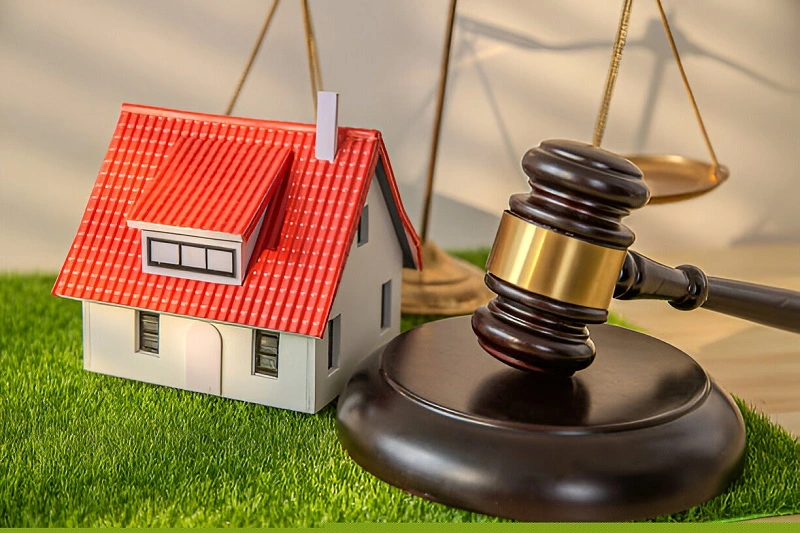
Frequently Asked Questions
You might be surprised, but I’ve occasionally seen traditional buyers take interest in fire-damaged properties. These brave souls usually come inSelling timelines can vary significantly based on your chosen method. I’ve found that working with cash buyers or professional investors typically leads to the fastest resolution, often closing within 7-14 days.
Traditional market sales generally take 3-6 months, though this can stretch longer depending on damage extent and market conditions. Your property’s location, the severity of fire damage, and your pricing strategy play crucial roles in determining the final timeline.
Chicago law mandates completing a Residential Real Property Disclosure Report with specific fire damage details. From my experience helping homeowners understand this process, you’ll need to explore the complete fire damage history, including structural impacts, smoke damage, and water damage from firefighting efforts.
You must also report all completed repairs, ongoing issues, and any insurance claims filed. Being thorough with disclosures protects you from potential legal complications down the road.
Yes, you can sell your property while an insurance claim is active. I’ve guided several homeowners through this situation, and the key is transparency with both potential buyers and your insurance company. You’ll need to address how the insurance proceeds will be handled during the sale process.
The claim might need to be assigned to the new owner, or you may need to negotiate settlement terms as part of the sale agreement. Professional buyers who specialize in fire-damaged properties often have experience managing these complex situations.
Keep a thorough repair documentation portfolio including:
• Fire department reports
• Insurance claim records
• Detailed repair invoices and contractor work orders
• Building permits and inspection certificates
• Local building authority approvals
• Before and after repair photographs
• Professional inspection reports confirming code compliance
How do I determine a fair price for my fire-damaged property?
Start with your property’s pre-fire value as a baseline, then subtract estimated repair costs. I recommend gathering multiple professional assessments for both damage evaluation and repair estimates to ensure accuracy.
Research recent sales of similar damaged properties in your area to understand market trends. Consider whether you’re selling as-is or after repairs, as this significantly impacts value. Many professional buyers offer free property assessments to help establish a realistic market value, giving you a solid starting point for pricing decisions.
What You Should Do After A House Fire In Chicago
In the aftermath of a house fire in Chicago, immediate actions are crucial to address the situation. Here are the steps you should take:
Quick Checklist
1. Contact the fire department for a report.
2. Speak with your insurance company to assess any damage.
3. File an insurance claim.
4. Adhere to legal disclosure requirements when selling a fire-damaged house in Chicago.
Depending on your decision to repair or sell the fire-damaged house, you will need to:
1. Assess the damage
2. Contact insurance
3. Obtain multiple quotes
4. Budget for unexpected expenses
5. Work with insurance to get your payout
6. Complete repairs
7. List on the market
Collaborating with an adjuster can assist in evaluating damage and repairs and guarantee an equitable settlement when submitting a fire insurance claim.
Sell Your House After A Fire For Cash in Chicago Today
Selling a fire-damaged house in Chicago is absolutely achievable – I’ve seen numerous homeowners successfully handle this challenging situation. From my experience working with property owners, the path to success lies in choosing the approach that best fits your circumstances. You’ve got two main options: partnering with cash buyers for a quick, as-is sale, or investing in repairs for a traditional market listing.
Let me share what I’ve learned about making this process smoother:
• Be upfront about the fire damage – transparency builds trust with potential buyers
• Keep all documentation organized and readily available
• Work with professionals who have specific experience with fire-damaged properties
• Consider getting multiple offers to understand your property’s true market value
I’ve noticed that homeowners often get stuck in the emotional aftermath of fire damage. Trust me, that’s completely normal. But here’s the thing – by focusing on practical steps and connecting with experienced professionals, you can transform this challenge into a successful sale.
Your property’s current condition isn’t the end of the story. In fact, many investors and renovation experts specifically look for fire-damaged properties in Chicago, seeing potential where others might not. Whether you need to sell quickly or want to take time to explore your options, there’s a solution that will work for you.
Take that first step today. Reach out to professionals, gather information, and start moving forward. With the right support and strategy, you’ll join the many Chicagohomeowners who’ve successfully turned their fire-damaged property sale into an opportunity for a fresh start.
Sell Fire Damaged House Chicago!
If a simple home sale that closes on your schedule sounds like what you need, come check us out. You can request a free quote for your house by filling out our form below!
We’ll Give You A No Pressure As-Is Cash Offer in 24 Hours
We’re Local, Can Close in 10 Days, Fast Cash
